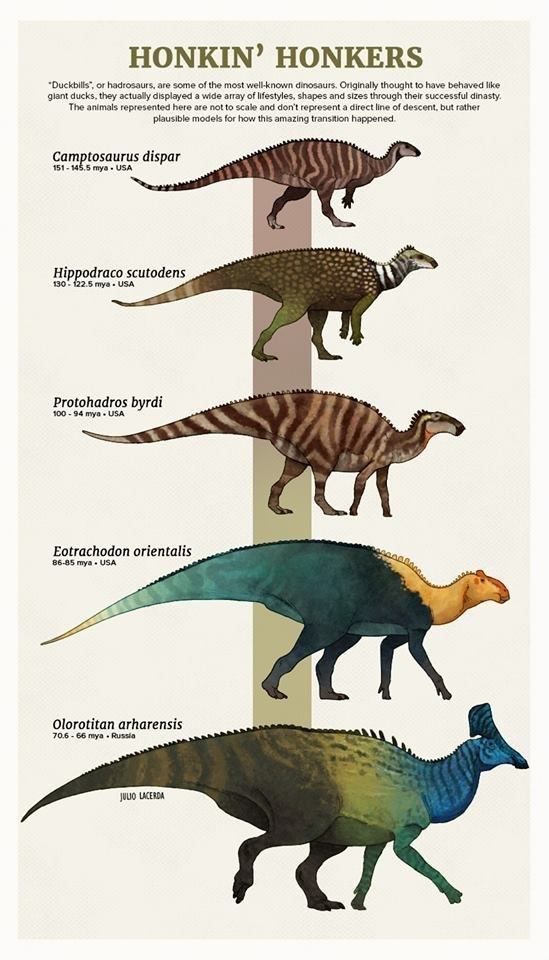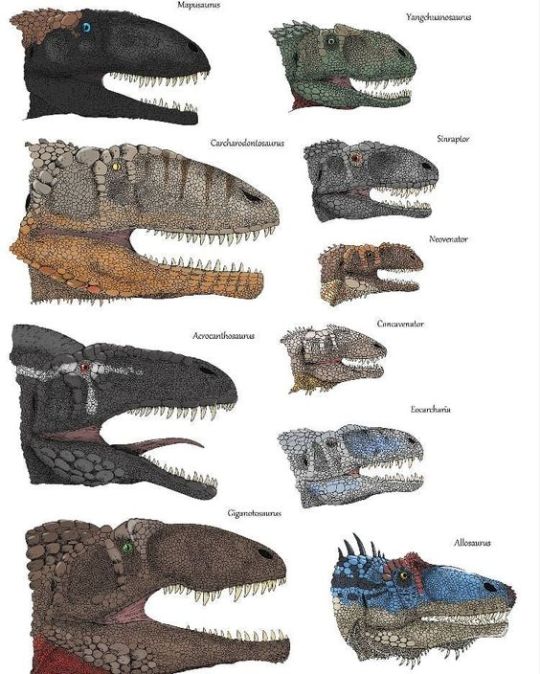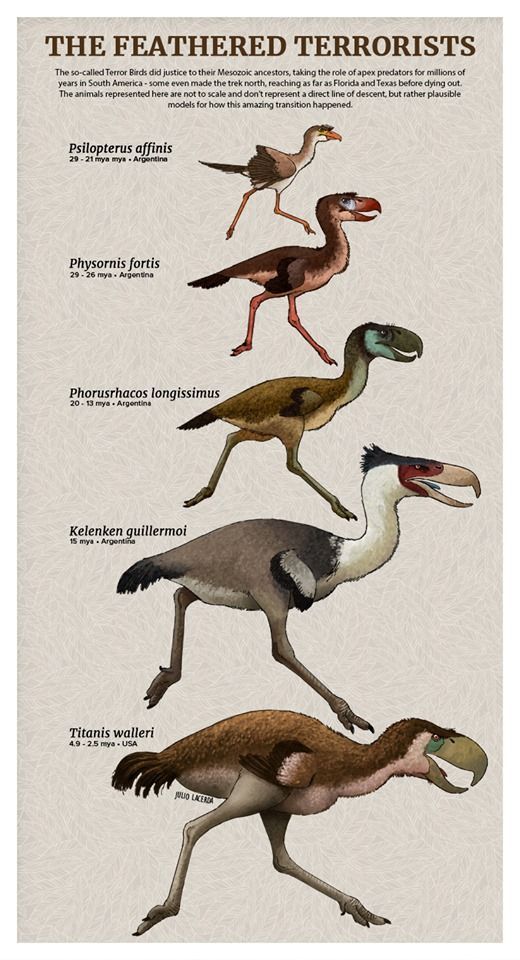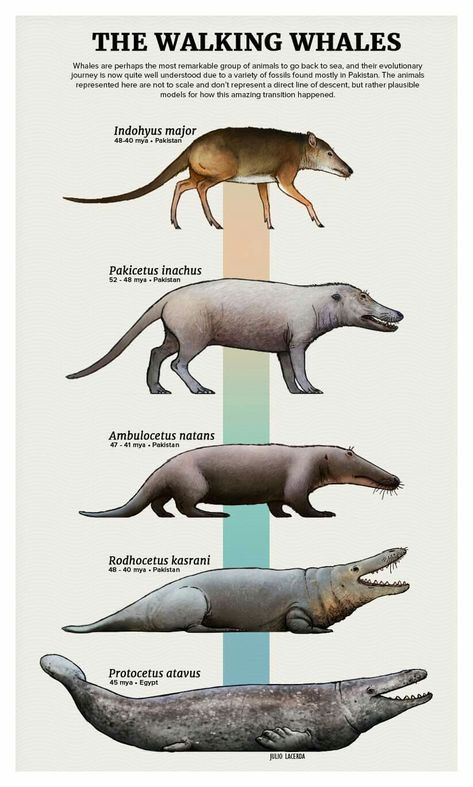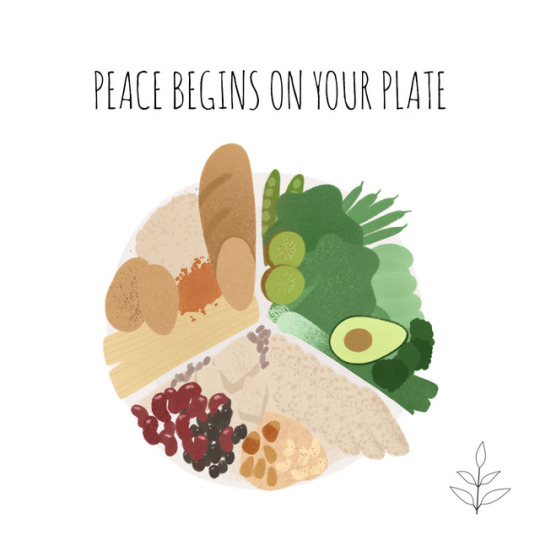Text
[IMPORTANT] A response to SomethingLikeaLawyer's views of Daenerys, an explanation of why Robert's Rebellion is not a righteous war & why Dany burning King's Landing is a theory with lots of negative implications (that go beyond favoritism)
First, I’m being sincere when I say that I think that @warsofasoiaf aka SomethingLikeaLawyer is a great writer (I especially love many of his worldbuilding posts) who deserves respect. That I’m willing to respond to his views of Dany already shows that I have respect for him, since I know that they influence the fandom’s outlook of the character. Also, I appreciate that he not only took the time to read my previous meta addressing some of his points about Dany but also wrote a polite reply to it. I’ve been blocked and harassed for merely expressing my views before, so his attitude means a lot. That being said, knowing a lot doesn’t mean knowing everything, which is what I intend to show by explaining how he’s mischaracterized and harshly judged Dany. Then, I’m going to point out the double standards and negative implications inherent in thinking that Robert’s Rebellion was righteous and to address why Dany burning King’s Landing is a theory that targets lots of marginalized people and that shouldn’t be an outcome for the readership to be excited about.
Second, since the title already makes people inclined to think that I’m “biased”, I’m going to bring up a lot of book evidence to corroborate my statements. Because the meta would get very long (more than it already is) if I had added the quotes here, I decided to link to asearchoficeandfire instead.
Third, the meta I’m primarily responding to is this one. However, I’m also going to reply to other metas if I find it necessary to comment on a certain viewpoint that he expressed elsewhere.
Argument 1: Daenerys does not value her word, nor does she see her obligations as binding.
As proof that this is what Dany tends to do, the essayist brings up 1) “that she is willing to enter into bargains that she has no intent of fulfilling, when she dealt with Kraznys” and 2) that “she abandons the responsibility” “as soon as the position [of a khaleesi] requires her to do something she does not desire”.
1) Before we get into the deal with Kraznys, why did Dany decide to go to Astapor in the first place? Jorah gave her the idea to go there and buy Unsullied, but why was she okay with doing so? Two reasons: first, she was a 14/15-year-old who didn’t really know how the slaves were mistreated. As she later tells Xaro, his slaves “seemed well treated and content” - this explains her lack of outrage about both Xaro’s slaves in ACOK and Illyrio’s in AGOT. Before ASOS, she thought that slaves were treated like normal servants; that’s because she had only interacted with slaveowners, not slavers. The second reason has to do with her background. Dany lived in poverty during her formative years and witnessed how being powerless negatively affected her brother. She had her taste of “the beggar’s bowl” in Qarth and does not want to “come to Pentos bowl in hand” again. So, to make it clear right away, that Dany chose to go to Astapor does not mean that she was okay with slavery (though Jorah is) and just wanted an army.
In Astapor, Dany witnesses the Unsullied’s training and finds out that they: 1) are not considered men and have their names changed every day so that they lose their sense of individuality; 2) begin their training at five; 3) are forced to undergo such a rigorous training that only one boy in three survives it; 4) are forced to stand for a day with no food or water to prove their discipline and strength; 5) are forced to drink the “wine of courage” to feel less pain and endure a lot of torture (like having their nipples cut off); 6) are forced to kill puppies after one year taking care of them (and, if they don’t kill them, they are fed to the surviving dogs); 7) are forced to kill a baby in front of its mother in the slave marts. Additionally, while the exposition of their training happens, Kraznys feels entitled to whip Missandei several times. Afterwards, he recommends that Dany goes to the pits to see duels against “a bear and three small boys”.
Accepting the bargain with Kraznys as legitimate would mean accepting the Unsullied’s and the Astapori slaves’ oppression as a whole as legitimate. In Dany’s view, if she is to be a true queen, she must “protect the ones who can’t protect themselves”. So she revolts against the masters and the narrative frames her actions as righteous by linking her draconic force to freedom.
To the essayist, however, that’s not what her actions mean. To him, Dany’s actions against the slavers mean that Dany might not “honor arrangements if she enters them in deliberate bad faith”, which veers into slavery apologism since it’s implicit in his statement that the right thing to do was to honor the deal, i.e., buy the Unsullied and leave the slave trade intact. To him, Dany’s actions against the slavers mean that she might “take [his] troops to fight her wars and not defend [his] land”, which veers into slavery apologism since it’s implicit that the right thing to do was to honor the deal, i.e., buy the Unsullied and leave the slave trade intact. To him, Dany’s actions against the slavers mean that she might “take [his] taxes but snatch up holdings in [his] fief to please some other vassal”, which veers into slavery apologism since it’s implicit that the right thing to do was to honor the deal, i.e., buy the Unsullied and leave the slave trade intact.
Besides, as @mytly4 points out here, slavery is illegal in Westeros. Dany’s refusal to accept the deal, if it means anything, is more likely to count in her favour (though, as we know, she didn’t take action against the slavers for that reason).
2) To show that Dany benefits from the “power of a khaleesi”, the essayist mentions that she supposedly “authoriz[ed] Viserys’s execution”. The basis of the argument is wrong to begin with, because we should remember that Dany was sold as a sex slave. She explicitly told Viserys that marrying Drogo wasn’t what she wanted, but she was forced to do so and then was raped by him multiple times. To imply that Dany had any actual power during Viserys’s execution is dubious at best and blatantly false at worst. Indeed, Viserys didn’t just threaten Dany’s son, he threatened Khal Drogo’s son. Would Drogo have let Viserys remain alive after that? Highly unlikely. Did Dany authorize his execution? Nothing in the text suggests that she had any say in this.
Also, I am not sure if the essayist implies that she shouldn’t have authorized it … As I just said, she didn’t have any say on the matter whatsoever, but even if she did, we shouldn’t expect her to lift a linger for him. Why should she? After years of physical and emotional abuse? After he sold her into sex slavery? After he attempted to rape her (even if she’s unaware of this fact, it makes it clearer that she didn’t owe her brother anything)? After she tried to reach out by giving him new clothes and even being willing to give him her dragon eggs? Dany was unable to establish any boundaries in her relationship with her brother and only did so once he threatened to kill her son (not her). To suggest that she should have done more or that she should have had a different reaction or that this is proof that she would be “an arbitrary ruler that erodes faith in the monarch” is victim blaming.
If the essayist wanted to argue that Dany “acts with the power of a khaleesi”, he should have mentioned her attempt to help the Lhazarene victims, which I’ve talked about before here. Thanks to Dany’s authority, she stops Drogo’s men from raping the women from Lhazar. We see in the scene, however, that her agency is very limited; she “wonder[s] if she had dared too much” when Drogo confronts her about her actions and she tries to conciliate Drogo’s interests and the Lhazarene women’s well-being by suggesting that Drogo’s warriors marry these women instead. It’s not a good solution, but she’s 14 at this point and, as far as she is concerned, her husband helped her more than her brother ever did; Drogo was “the shield that kept her safe”. In any case, this moment and her order to let Mirri Maz Duur take care of her husband are the only ones in which she actually “acts with the power of a khaleesi. They go unmentioned, perhaps because they are too altruistic in nature and the essayist isn’t willing to uplift Dany’s character in any way.
I also wonder what he means when he says that Dany “forfeits responsibility when the position [of a khaleesi] requires her to do something she doesn’t desire”. Does that mean that the essayist expects her to go to Vaes Dothrak and live with the Dosh Khaleen? That’s blatantly misogynistic (in the sense of enforcing women to stay in their patriarchal confines), so I hope not. No woman should have to be isolated from the world and prevented from exercising her political authority elsewhere because her husband died. Dany is completely justified in challenging these norms.
Argument 2: Daenerys confuses her office as a queen with herself as a person.
The essayist brings up three of Dany’s actions to corroborate this argument: 1) her execution of 163 Great Masters; 2) her authorization of torture for information; 3) her judgment of Jorah and Barristan.
1) While I don’t think that Dany did the right thing here, it’s important to note that Dany specifically asks for the leaders of Meereen, i.e. the ones who are most likely to have ordered the children’s deaths. Therefore, it’s inaccurate to say that she took the action “without finding out who was responsible for the crime, not even a cursory examination”. One could argue that that isn’t enough to guarantee that all of the crucified masters were actually responsible, that’s for sure. Still, is it fair to expect her to determine their guilt? The text never suggests that she had to do so. Even one of her detractors, Qavo, only says that “those who speak against her are impaled to die lingering deaths” - he never mentions that she should have given them a trial or that she was arbitrary. It’s also noticeable that, unlike in the show’s depiction, nobody around Dany ever points out that she was too violent for taking this particular course of action, which implies that her act, while certainly motivated by personal vengeance, is most likely normalized in this universe.
Before I move on to Dany’s next controversial action, I need to address some points that the essayist makes in a digression about Dany’s supposed motivations as a ruler. He says:
a) That Dany “is misusing her office and duties for self-gratification”, that she “wanted to feel better for being unable to protect the 163 children” and that “crime and punishment […] cannot be treated as a bandage for wounded pride”.
b) That Dany “does not desire to bring stability, peace, or growth either to Westeros or to Meereen”.
c) That, instead of planting trees, “she wants to hurt the people who made her powerless”, “kill the ones who shattered her ego, by forcing her to compromise, by evicting her family from Westeros, one and all.” “She’s lost any high-minded concept she may have had” “at the end of A Dance of Dragons, where Daenerys fully embraces the mantra that dragons plant no trees”. “She wants her opponents to suffer so she can feel like the glorious queen she imagines herself to be”.
Ooof. There’s a lot to unpack in these three items before I move on to Dany’s second controversial action.
a) While it’s true that Dany’s inner thoughts are indeed focused on obtaining vengeance when she decides to crucify 163 masters, to say that she only “wanted to feel better” due to her “wounded pride” is quite a reach. I’m going to bring up Dany’s previous actions that the essayist never brings up to explain why:
Why isn’t it brought up that, in the previous chapter, Dany had said that she “will not march [her] people off to die” because they are “[her] children” (which is one of two moments that strongly resemble Edmure’s “My people. They were afraid”)?
Astapor: Why isn’t it brought up that Dany could have just offered all the trading goods inside the ships to the masters and gotten the 1000 Unsullied that Jorah advised her to get? Why isn’t it brought up that Dany offered to pay double to make sure that she would get the untrained boys in Astapor (which she didn’t have to do if she just wanted an army)? Why isn’t it brought up that Dany could have given the trading goods and the ships and left with 2000 Unsullied (twice the number of men Jorah had recommended her to buy)? Why isn’t it brought up that Dany thought that “she must have them all” (from trained soldiers to “the little ones who still have their puppies”) and that “[i]t was her only choice” (akin to Brienne’s “No chance, and no choice”) to offer the masters one dragon?
Yunkai: Why isn’t it brought up that Dany didn’t have to worry about the freedmen’s safety in battle, but she does? Why isn’t it brought up that she could have kept the envoy’s chest for herself and chose not to? Why isn’t it brought up that she could have taken other chests from the city like she suggested, but instead promised to the envoy that “Yunkai will not be burned or plundered” if the masters released their slaves with “gold, clothing, coin and goods”?
Perhaps most importantly, why isn’t the moment where Dany says that “justice” is “what kings are for” and that kings and queens must “protect the ones who can’t protect themselves” brought up? Why is it about her “pride” or “ego” or “self-gratification” instead? Where do we see her benefiting from her endeavors (nowhere.)? Why aren’t her moral principles brought up as reasons to contextualize her behaviors at all? The essayist is cherrypicking at best and distorting Dany’s character at worst.
b) Dany “does not desire to bring stability, peace, or growth” to either Meereen or Westeros? Then why does she always hold court (even when Barristan says she should leave that task to her advisors)? Why does she make sure that freedmen and noblemen receive the same attention (which reinforces GRRM’s statement that Dany wants equality)? Why does she keep multiple freedmen as advisors in her council? Why does she make multiple decisions at court favoring the freedmen? Why does she chain her dragons? Why does she agree to marry a man she doesn’t love (and to sacrifice her sexual autonomy in the process)? Why does she agree to abandon a man she loves? Why does she send her khalasar to the hinterlands to free its slaves and bring crops to the city? Why does she send “gems and gold” to guarantee an alliance with the Lhazarene and consequently reestablish the overland trade route through the Khyzai Pass and bring grains down the river or over the hills? Why does she order that irrigation canals are built to plant beans? Why does she plant grapes and wheat? Why does she replant olive trees? Why does she try to sell salt and wine and copper? Why does she promise to pay “good gold” for the short sword of Stalwart Shield and “one thousand honors” for information about the Sons of the Harpy? Why does she pay people affected by her dragons’ actions? Why does she set up a camp and send food to the Astapori refugees? Why isn’t she bothered at all for having to compensate the Yunkish masters with “gold and gems”? Why does she order the food that would be normally thrown away to be given to the poor? Why does she seek to strengthen her military forces to defend the city from the Yunkish masters and does not care about the price to do so? Why does she refuse to go to Westeros multiple times and thinks that “she wanted Westeros as much as [Barristan] did, but first she must heal Meereen”? These actions don’t fit with the essayist’s statement that Dany “does not desire to bring stability, peace, or growth” at all. They show, instead, that he’s being very selective about what he chooses to mention.
c) It’s easy to bring up Dany’s so-called desire to “hurt the people who made her powerless”. What’s not brought up is that she also wants to hurt these people for being complicit in Rhaenys’s and Aegon’s deaths by letting them happen and go unpunished. She is wrong for thinking that the Starks and the Lannisters are one and the same, but she is right in blaming Robert for not punishing Gregor Clegane and Tywin Lannister and acknowledging these losses. (More on this issue later)
It’s easy to briefly mention Dany’s so-called “ego” or that she wants to “feel like the glorious queen she imagines herself to be”, but where are the book passages corroborating these statements? @rainhadaenerys wrote an in-depth meta explaining why Dany is not arrogant. I collected all the passages in the books showing the moments where Dany asserts her titles and she never uses them to show herself off for self-gratification. I also collected a (very long) list of all the passages showing how self-deprecating Dany actually is. I wrote a meta with a lot of book evidence explaining that Dany is neither prophecy-driven nor conscious of her heroic destiny. Thinking highly of herself or being arrogant is not a major aspect of Dany’s characterization.
It’s easy to say that Dany has “lost any high-minded principles she may have had” while not mentioning any of her selfless deeds (as I already laid out above).
It’s easy to say that she “fully embrace[d] the mantra that dragons plant no trees” and that this means that she will now “kill the ones who shattered her ego, by forcing her to compromise, by evicting her family from Westeros”. I’m gonna talk about whether her eventual arrival in Westeros will be morally wrong or not in a later section. For now, I’ll focus on how the essayist frames it as a negative development that Dany will “kill the ones who shattered her ego, by forcing her to compromise”. I’ve already showed that Dany doesn’t have a big ego. By mischaracterizing her as someone who does, he intends to argue that the foreshadowing for Dany going down a dark path is her desire to punish the people who are okay with selling human lives.
The same people who burned Meereen’s fields and crucified 163 children. The same people who let the Astapori starve inside their city and eat “cats and rats and leather” (which is probably what caused the bloody flux in the first place). The same people who burned Astapor merely as a lesson for the abolitionists. The same people who hunted down the Astapori citizens. The same people who threw corpses afflicted by the pale mare to spread the disease in Meereen and end the siege quickly. The same people who were okay with forcing Tyrion and Penny to “fuck”. The same people who had a 15/16-year-old girl naked to be sold. The same people who are okay with whipping their slaves in the back until there “was nothing but blood and raw meat”. The same people who were okay with reopening the fighting pits and letting the systematic killing of freedmen to persist for their own entertainment. The same people who were okay with letting lions loose on Tyrion and Penny, who hadn’t consented to participating.
How terrible it must be that the slavers die.
This slavery apologism in his arguments arises due to both the essayist’s lack of knowledge of Dany’s characterization (since she’s actually one of the most self-critical characters of the book series) and by his desire to criticize her very harshly.
I also think that the essayist didn’t really understand what “dragons plant no trees” is supposed to mean for Dany’s character development going forward; here we enter the realm of speculation, I admit (which he doesn’t).
Dany is terribly disillusioned and pessimistic by the end of ADWD due to her abolitionist reforms being slowly but surely undone, so it makes sense that she would think that “dragons plant no trees”. Even so, it’s also noticeable that it’s Jorah (albeit in Dany’s mind) who tells her that. Jorah doesn’t know Dany at all (for reasons I’ll elaborate below); as @yendany explained here, it’s one of the many signs that “dragons plant no trees” is not a statement that’s meant to define Dany’s endgame. Dany’s problem was not her ego or her repressed desire for vengeance or anything of the sort. Her problem that she was too lenient with the slavers; by leaving the Yunkish slavers’ wealth intact, she had an indirect part (but she’s not ultimately responsible for them, just like Cat isn’t responsible for the burning of the riverlands) in atrocities like Astapor’s fall, the pale mare’s outbreak and the upcoming Battle of Fire. By leaving the Meereenese slavers’ wealth intact, she had an indirect part in the Sons of the Harpy’s attacks. She had to deal with war outside and inside the city and ended up making too many concessions to establish an alliance with the slavers and keep hold of Meereen. They led Dany to stop holding court and being mhysa. On the other hand, by choosing fire and blood and getting in touch with her identity as the Mother of Dragons, Dany will be a better mhysa to her people; she’ll finally align pragmatism and principle as she did in ASOS when she began her revolution and prioritized the freedmen over the nobles. No wonder the narrative itself alludes to Dany returning to her ASOS mindset, which was also when her draconic force was linked to freedom. This isn’t to say that things will go 100% smoothly and without any negative consequences (when did that ever happen to Dany?), but Dany’s actions will ultimately be framed as righteous, for she’ll be once again actively and consciously fighting for the oppressed.
Could I be off the mark? Sure, I do acknowledge that this is speculation. However, I’m also making sure that it’s backed by a lot of textual evidence, which is more than the essayist is doing.
NOW, let’s move on to Dany’s second controversial action.
2) Dany’s order to torture the wineseller and his daughters is definitely an action that complicates her character, I’m not denying that it doesn’t. That being said, this must be contextualized in her time and place, in which the use of torture is normalized. To his credit, the essayist acknowledges that fact (though he also lingers for quite some time on how “barbaric” and “disgusting” torture is, which has the effect of undercutting his acknowledgement of how normalized this method is in this world and of manipulating the readers into feeling more uncomfortable with Dany than they otherwise would be). He mentions Tyland Lannister and the position of the Lord Confessor as one example. I would also add that the Vale, the Night’s Watch, the North and King Jaehaerys I (who the essayist praised in the past) have all used it.
He doesn’t point out two important things to fully comprehend the situation. First, it was not Dany’s idea to torture the wineseller and his daughters, it was the Shavepate’s. While that doesn’t take away from Dany’s responsibility since she authorized him to do what he proposed, it does matter in terms of Dany’s characterization.
Second, it’s ironic that the essayist takes the time to note that “empirical research indicates that torture simply doesn’t yield accurate data, which Martin hints at numerous times throughout the novel series” and then fails to remember that Dany is the only ruler who is shown onpage realizing that torture doesn’t bring feasible results and who puts a stop to it.
He criticizes Dany for “only authoriz[ing] the torture because she personally knew the victim” (Rylona Rhee) and “not acting […] because the victim was an agent of the state” (the Unsullied). First, he forgets that Rylona Rhee was not only beloved by Dany, but also the leader of the Yunkish freedmen and, therefore, a major political figure whose death would require a bigger response. Second, Dany had already authorized torture before she heard about Rylona’s death - she ordered the Shavepate to question them “sweetly, to begin”. Third, we later find out that other suspects were tortured as well, which must be noted because it shows that her use of torture was standard practice rather than carried out arbitrarily. Fourth, the essayist doesn’t note that these measures were taken because Dany was afraid for her children. Fifth, I don’t interpret this moment as showing that Dany values Rylona’s life more than the Unsullied’s. I’m not saying that there isn’t desire for vengeance involved in her decisionmaking, there certainly is. However, I would say that Rylona was the final trigger (rather than the sole reason) for Dany to change her attitude. She “made a fist” when she found out that Mossador was killed and she was, again, “afraid for her children” in general, not just Rylona. Sixth, Jaehaerys I Targaryen had a similar, though much harsher, reaction when he found out that Rego Draz was murdered by the crowd. He threatened to cut the people’s tongues if they didn’t give him names and, after a girl decided to inform them, the murderers were “hung from the walls of the Red Keep, disemboweled, and left to twist until they died, their entrails swinging loose down to their knees”. And he’s still the Conciliator, GRRM’s favorite King and one of the examples praised by the essayist for “labor[ing] to make Westeros a better government”. If Jaehaerys can be a good ruler despite these shortcomings, so can Dany.
3) Dany’s final controversial moment, in the essayist’s eyes, was when she judged Jorah and Barristan differently. This, for him, is another moment when Dany lacks impartiality.
I said above that I would elaborate on why Jorah doesn’t know Dany at all; now’s the time. I wrote an in-depth meta about how much of an asshole he is and backed up my statements with book passages. To sum them up, he constantly tries to isolate Dany from other men, he tries to make her distrustful of others, he belittles and acts condescendingly, he forces a kiss on her and constantly looks at her breasts and disrespects her boundaries in general, he hides information from her and he is okay with slavery and doesn’t understand why Dany cares so much about the Lhazarene victims or the Ghiscari freedmen. He’s basically a creep attempting to groom Dany, similar to what Littlefinger is doing with Sansa. Even if Jorah hadn’t given Dany many reasons at court to send him away (and he will do so, as I will show below), criticizing her as a ruler for sending him away is pure victim blaming.
Instead of paying attention to this toxic dynamic, the essayist criticizes Dany as a monarch partly based on the fact that “she was angry that he did not immediately beg for forgiveness”. It’s particularly disgusting and insensitive to compare Dany negatively to the “bloody-handed tyrant” Henry VIII based solely on how Dany dealt with Jorah. Dany had every reason to feel that she was owed respect after all of the things he did to her. Dany had every reason to feel that she was owed respect after she found out that he was spying on her. Dany has every reason to feel that she is owed respect because she is a woman. Henry VIII was respected without having to ask for it because he was a man. Dany has to fight for respect; this means that she has to be more conscious and open than a man about her desire to be respected … because she is a woman. It’s only natural that she’s gonna have negative feelings if she doesn’t receive the proper treatment of liege that she’s owed from her subject. This essayist can’t take gender dynamics into consideration and acknowledge all the ways that Jorah disrespected and infantilized Dany and how he always exploited the power imbalance in their relationship. Meanwhile, Barristan never looked at her breasts without her consent, Barristan showed respect and humbleness and, most importantly, Barristan truly respected Dany as an authority. This moment from ASOS Daenerys IV pretty much sums up the difference in how these two men treated Dany - Jorah called her “Rhaegar’s sister” (or khaleesi, always tied to a man), Barristan considered her “a queen as well”. Dany definitely made the right choice in sending Jorah away and it’s a shame that the essayist doesn’t view that as a positive moment. I hope that no one accuses Sansa of “view[ing] her personal desires and opinions as superior to the law” when she inevitably defeats Littlefinger, for that would be victim blaming. It’s pretty much the same situation with Dany and Jorah.
Moreover, the essayist can’t take into consideration all the reasons that justify Jorah’s dismissal based on his behavior at court. Let’s remember that Jorah had hidden information from his liege to “protect” her (something he wouldn’t have gotten away with if Dany were a man). He then acted as if he was owed sole recognition for Meereen’s conquest (when Dany was the one who planned most of the military strategy to take Meereen) in front of Dany’s subjects, he lied when he denied that he was Robert’s source in front of Dany’s subjects and then he argued that he was owed forgiveness in front of Dany’s subjects. I’m reiterating that he did all of these things in open court because to forgive him would have meant undermining Dany’s authority. Besides, Dany had every reason to expect more humility from Jorah’s part, which he miserably failed to do because he always acted patronizingly towards Dany and doesn’t know how to act otherwise.
To say that Dany “considers both [Jorah and Barristan] equally guilty of the same crime” is false. As she notes here, Barristan lied to her about his name, while Jorah sold her secrets to her political enemies all the way to Qarth. There’s another man who she considers to be “equally guilty of the same crime” Jorah did, though: the wineseller. As Dany notes, if he was “dragged […] behind her horse until there was nothing left of him, […] ”[d]idn’t the man who brought him deserve the same?“. Ironically, she is shown doing the exact opposite of what the essayist claims she is doing: she is worrying about being arbitrary, which leads her to decide that it’s impossible to forgive Jorah.
It’s also important to note that we’re in a time and place where the line between “impartial” justice and personal vengeance is particularly blurred. Just think back to King Jaehaerys I, praised by the essayist for “labor[ing] to make Westeros a better government”; after finding out that his daughter had (consensual) sex, he gives Braxton Beesbury an ultimatum: be gelded, have your tongue and nose removed and have your arms and legs broken or fight against Jaehaerys himself in a trial by combat. Braxton has no good choice here and Jaehaerys spins it as “justice”; all because he had consensual sex with his daughter. Then, he forces Saera to watch his killing of Braxton, all because she dared to have sex. Later, after Saera runs away from the motherhouse and becomes a prostitute in a Lysene garden, Jaehaerys says that “she always was” “a whore” and forbids Alysanne to visit Saera, for she needs her “as a Dornishman needs a pit viper”.
I need to make it clear that Jaehaerys’s actions paint his character in a much, much more negative light than Dany’s do. First, consider that Jaehaerys is 49 and Dany is 15. Second, consider that Dany was thrown into a situation where more collateral damage than usual would be inevitable since she’s trying to end slavery; Dany is fighting for power in the name of the smallfolk, Jaehaerys is simply holding it (and not primarily for the sake of the oppressed). Now, yes, Dany choosing to go with “an eye for an eye” or to allow the torture of people who may not have been to blame weren’t her best decisions. And yes, there is anger and desire for vengeance involved. Still, both of these decisions were made thinking of the children that the masters crucified solely to piss her off and the citizens that the Sons are killing solely to piss her off. Meanwhile, Jaehaerys took very extreme actions solely because he couldn’t stand that his daughter was “despoiled”. Both punishments have a personal dimension to them, but the latter is much, much more despicable when you compare their actual intentions (and experiences).
Jaehaerys may be a blatant misogynist, but GRRM still regards him as “the good king” who “ruled for 55 years with peace and prosperity”. Even though his punishment of Saera and Braxton was so clearly personal, arbitrary and disproportionate to what they did and even though he disregarded his wife’s feelings for the sake of his misogyny, GRRM still sees him as a dragon who planted trees. Even a good king (albeit a misogynist one even by Westerosi standards; see Ned Stark or Selwyn Tarth as contrasts) like Jaehaerys can act callously because he wants to. That’s social commentary. Dany can’t be criticized on her own for arbitrariness without a lot of double standards involved.
Argument 3: A Targaryen restoration means violation of the notion that a king who violates his lordly obligations and the social contract is no true king.
It’s convenient for the essayist to argue that Robert’s Rebellion is a righteous war since it gives him a reason to say that Dany will be doing the wrong thing when she returns to Westeros to fight for her birthright. I’ve also seen others say that Robert’s Rebellion is as righteous as Dany’s crusade in Slaver’s Bay (so they at least acknowledge that it was righteous in the first place, while this essayist uses it as a reason to paint Dany as a “tyrant”).
But the thing is: Robert’s Rebellion was not a righteous war and certainly does not deserve to be compared to Dany’s crusade.
Was it necessary to depose Aerys? Definitely. I’m not saying that it wasn’t.
However, what isn’t remembered is that Aerys was already doing terrible things to his subjects long before the deaths of Rickard and Brandon Stark. He a) had Ilyn Payne’s tongue ripped out after he joked that Tywin ruled the Seven Kingdoms, b) killed Prince Jaehaerys’s wet nurse, c) killed his own mistress and all of her family and d) exterminated the Darklyns.
Where were the rebels while the peasants and the lower nobility were being brutally punished and/or killed? Where were the rebels while the peasants and the lower nobility had their basic human rights disrespected?
One could argue that the rebels already had reasons to restrain the Targaryens’ power for a long time, if the Southron Ambitions theory is to be believed. It’s still noticeable, however, that it took the killings of Brandon and Rickard and the call for Ned’s and Robert’s heads for Jon Arryn and other great lords to do something about it. They only took action when the lives that they prioritized were in danger. When the lives of other innocents were in danger, they didn’t lift a finger. That’s why Robert’s Rebellion is not a righteous war and does not deserve to be compared to Dany’s abolitionist crusade in any way.
It’s also noteworthy that Aegon V’s pro-smallfolk reforms were most likely one of the catalysts for the alliance pact to be developed, since the rebels weren’t willing to lose their privileges to help the peasants. This highlights how Robert’s Rebellion is, more than anything, a power grab.
To hammer home the point that the rebels prioritize the lives of some people over others’, GRRM has Elia, Rhaenys and Aegon killed by Gregor Clegane, who was one of Tywin’s (and Robert’s) men at the time. Why didn’t Robert punish both Tywin Lannister and Gregor Clegane for what happened? And if he let these people go unscathed, then why isn’t the Baratheon regime denounced the way the essayist thinks that the Targaryen regime was denounced because of the deaths of Brandon and Rickard Stark? Judging Robert’s Rebellion as righteous means prioritizing the lives of white high lords over the lives of lowborn people and people of color.
Additionally, viewing Robert’s Rebellion as righteous means ignoring another very important point: the entire system is rigged. No one—no Baratheon, no Targaryen—should have such a degree of authority over others. Indeed, this system treats women like brood mare, it oppresses more than ninety percent of the population, it goes on through a line of succession where it’s never guaranteed that the son will be as capable or as moral as the previous king, it encourages family feuds over lands and titles and bloody wars in which the peasants ultimately pay the price, etc. Regardless of who assumes, this system is inherently defective.
Which leads me to why the theory that Dany burns King’s Landing is offensive in many, many ways.
On the theory that Dany burns King’s Landing
In other posts, the essayist explains his reasoning as to why it supposedly makes sense for Dany to be the one who causes King’s Landing’s destruction by wildfire:
Having Dany set it off means she has a reason to seek redemption, forcing her to acknowledge the terrible things that her father did, the terrible consequences that powers entails, and forcing her to confront, once and for all, the question of whether she is mad. (x)
~
It’s made worse when she would learn that the wildfire caches are Aerys’s last legacy, that his final act as king was to attempt to destroy his own people. This comforting rationalization can no longer apply. Aerys was illegitimate, and his deposition was just. (x)
First, why does Dany need to be the one narratively punished by her father’s legacy? Every single House has achieved its power and dominance through bloodshed and had an awful ruler at some point. Most, if not all, of the feudal houses have decided, at some point, to wage war at the expense of people potentially dying because that’s the issue with feudalism. And they are not nearly as punished or judged negatively for it either in-narrative or in real life. So why is Dany’s story being consistently singled out as the one in which she needs to face her worst version, her “worst self”?
Second, why the heck is it dramatically interesting to have Dany seek redemption for anything? Especially when she comes off of a storyline where she was doing too much (helping the slaves, we must remember, was not her moral duty); indeed, she’s one of the characters who better embody the idea that you have to do the right thing even if it doesn’t bring you any rewards (and I already listed her numerous sacrifices above). I also dislike how this makes it implicit that she can’t be a peacetime queen and is only meant be a heroine who will help to defeat the Others, which is so dismissive of Dany’s development and skills. First, she is reduced to being a dragonrider, a weapon, a deus ex machina to allow the Starks to triumph. None of her ADWD experiences and actions (the majority of which the essayist never brings up) will have any bearing in this endgame speculation. Second, she’s had a lot of interesting character development as a ruler and a leader, but, because she is a she-king (and, therefore, someone who makes decisions about warfare, which you won’t see someone like Sansa do; Sansa has other valid merits and skills, of course, I’m just pointing out the misogyny in saying that only women who conform to gender norms are meant to stay to rebuild the world) and a revolutionary (who necessarily needs be more ruthless if she wants to truly abolish slavery, which you won’t see someone like Stannis do), she has to be reduced to being “meant for war”? To simplify her identity in that way instead of taking her unusual circumstances into account is deeply misogynistic.
Third, even if you discount Aerys, Rhaella’s claim should also matter. If Robert and the Baratheons can claim the Iron Throne because of Rhaelle Targaryen, Dany can do the same because of her mother.
Fourth, the relative that’s most often associated with Dany is not her father, it’s Rhaegar. This list of passages featuring all the moments displaying what Dany knows of her ancestors shows that “Aerys” is mentioned 3 times and “father” is mentioned 18 times (note that I excluded the ones that don’t refer to Aerys himself or that aren’t part of the book passages). “Rhaegar” is mentioned 27 times and “brother” (referring to Rhaegar; I didn’t count the ones referring to Viserys) is mentioned 17 times. This highlights that Dany is not her father; instead, by connecting her to Rhaegar, the author shows that she’s supposed to be viewed in a largely positive light.
I know that the essayist is not fond of Rhaegar, so I have to briefly talk about him too. I am critical of him as well and have written about how his treatment of Elia was not okay.
That being said, the double standards against Rhaegar are blatantly unfair. For all his mistakes, he still took actions attempting to save the world. Robert (whose rebellion the essayist judges as righteous) did no such thing, he only cared about his self-gratification and ran away from responsibility. Rhaegar’s relationship with Elia was “complex”, but he was at least “fond of her”. There was no complexity or fondness in Robert and Cersei’s relationship - he raped her multiple times, even after she had made it abundantly clear that he hurt her. In fact, this is another reason why it pisses me off that part of the fandom is so critical of Rhaegar while thinking that Robert’s Rebellion was righteous. Not only that rebellion prioritized white and privileged people over peasants and people of color, it also gave authority to a terrible king and a terrible person. Do you want to talk about how Elia and Lyanna suffered because of Rhaegar? Fine. But don’t shove Cersei’s suffering, which is presented onpage, aside because of Robert. As a rape victim myself, I feel disgusted by the agenda behind why people would rather speculate (since there’s nothing onpage) on the experiences of underdeveloped female characters whose relationships with Rhaegar were still positive to an extent and then barely address the suffering of a living, breathing POV character who was raped by Robert. And why? To paint Rhaegar as worse than Robert. And why? To support the narrative that Robert’s Rebellion is righteous. And why? To shove aside another rape victim who managed to rise to power thanks to her own actions and who actively chose to fight for the oppressed.
I would also ask you to consider that Gregor Clegane is revived and named Robert Strong. Not only is that a way for Cersei Lannister to reclaim her abuser’s name and power over her, it’s also a way to link Robert to the murderer of Elia and her children. How can Robert’s Rebellion be considered righteous since it’s abundantly clear that the event culminates in Robert enabling the Lannisters and Gregor to commit so many atrocities? No wonder a Lannister’s monster lives on with his name.
What’s also infuriating is that the essayist thinks that Robert was a moderately good king for making alliances while Dany is a “tyrant” in his eyes. Robert, the guy who let Tywin go unpunished for the deaths of Elia and her children, allowing him to burn the riverlands and enslave the smallfolk of the same region years later. Even if it could be argued that Robert only played an indirect role in these atrocities, they happened because he was negligent and unable to take responsibility. That’s in contrast to Dany; she also played an indirect role in the masters’ burning of Astapor, for instance, but that happened because she is an inexperienced 15-year-old who thought that they would leave her alone if she left their wealth intact, avoided bloodshed and remained neutral to their war. Unlike Robert with Elia and her children or with Mycah and Lady, Dany takes full responsibility for what happened because, as queen, she feels it is her place to know what to do to prevent her people from suffering. Also, even if Dany weren’t a much, much better ruler and person than Robert (and she certainly is), it bothers me that any sign of Dany’s moral ambiguity is painted as evil while Robert’s evil is painted as moral ambiguity.
Her external enemies have consistently failed to provide a credible external threat ever since ASOS. The Masters, the Sons, they never managed any sort of real menace to the story; the reader always knew Daenerys would triumph. The danger in Daenerys’s story is that she would succumb to the quick and easy paths of power, using power carelessly, becoming the brutal and petty tyrants that characterized the worst of her ancestors. This fear is what pushed her into unappealing compromises, and her rejection of such when she returns will initially be a giddy burst of triumph, and King’s Landing will be the wages of falling in the other direction. (x)
This entire excerpt is false. To explain why, I have six major points to explore.
First, I made seventeen lists of all the book passages showcasing key aspects of Dany’s characterization. I read her ASOS and ADWD chapters eight times. I can tell you with no hesitation that “succumb[ing] to the quick and easy paths of power” and “becoming the brutal and petty tyrants that characterized the worst of her ancestors” is not a recurring problem in Dany’s journey and I would challenge the essayist to provide book passages to back up his statements. For instance, he says that “do I have the taint?” is a “constant mantra in her ADWD arc”, but this only comes up once in ADWD Daenerys II.
Second, as I said before, the essayist misses the forest for the trees when he refuses to acknowledge how threatening the Masters are. If he thinks that they are ineffective as military commanders because GRRM failed in his writing of them, fine. It doesn’t change the fact that they are presented as a “credible external threat” and need to be viewed as such for Dany’s actions to make sense.
Let’s recap the events: at first, Dany thinks that she will be able to rule Meereen in peace if she remains neutral to Yunkai’s war. However, she later finds out that they are hiring sellswords and making alliances with other cities. Her influence is tenuous even inside the city. Because she left the Meereenese nobility’s wealth intact as well, they hired the Harpy’s Sons to kill the city’s freedmen and her soldiers. Later, with Qarth, Tolos and Mantarys against her, she makes a deal with Hizdahr to marry him if he’s able to give her ninety days of peace. However, after Astapor falls and the refugees infected by pale mare keep coming, she decides that she needs to marry him because “a queen belongs not to herself but to her people”. Later, Ben and the Second Sons betray her and she is forced to leave the Astapori outside the city with no food because her military strength has been compromised. She is also forced to reopen the fighting pits (and she was right that they should have remained closed for reasons I’ve explained here) as a compromise for her marriage.
The wars inside and outside are the reasons why Dany makes the compromises that she makes, not a fear of becoming a tyrant. The slavers are killing the Meereenese freedmen, letting the Astapori population stuck without any food, actively causing the pale mare to spread, selling human lives, acquiring a much larger force than Dany… And they’ve maintained a slave instituition for thousands of years. There’s that too. They are meant to be seen as a viable threat. Perhaps there’s another reason why the essayist doesn’t do so: he and the readership know that Dany will leave the region at some point and go to Westeros, so this makes them predisposed to think that Dany will inevitably come off as the winner. However, to undermine her storyline’s importance for the sake of Westeros has negative implications, as I will show below.
In any case, is Dany an awful ruler for not being able to control the slavers’ actions? No. She made political mistakes in leaving the Yunkish nobles’ wealth and the Meereenese nobles’ wealth intact, yes, but this was also motivated by her desire to prevent more deaths from happening. Her lenience was also motivated by her trauma in having lost so many people, from Quaro to Eroeh to Doreah to Stalwart Shield to Mossador to Rylona Rhee. These are understandable mistakes that indirectly cause huge consequences because her existence as the Breaker of Chains threatens the masters’ main source of income and way of life. Moreover, Dany is not responsible for the slavers’ actions, just like Cat isn’t responsible for the Lannisters’ burning of the Riverlands. Implying that they were would mean taking the slavers’ and the Lannisters’ agency away and equating competent and sympathetic characters to the worst kind of abusers.
As we can see, Dany’s problem was that she tried to hard to forge a false peace, for it privileged the noblemen over the freedmen. She needed to have been more ruthless all along. And yet, the essayist frames Dany’s struggle to be more firm as a danger of “becoming the brutal and petty tyrants that characterized the worst of her ancestors”. It’s an argument that veers into slavery apologism. Also, Dany is in a very difficult position in that she actively chose to fight for the slaves’ dignity and the slavers won’t voluntarily back down and see them as equals after so much time profiting off of their unpaid labor. To describe her eventual acceptance of her draconic identity (linked to freedom by the narrative) and use of force (which turns her back into the Dany of ASOS, as the narrative alludes to) as proof of her tyranny while all the moments where she chose not to use violence are conveniently ignored is misogynistic. To desire Dany to accidentally burn King’s Landing and be so heavily defined by violence without considering that her overall tendency to be conciliatory and compassionate and that she’s mostly used it in the name of the freedmen is misogynistic. Because Dany is using violence (for the good of the former slaves), she’s doomed to become much more defined by it than other male characters due to the scope of the tragedy the essayist speculates she will cause. This sort of narrative punishment is completely unwarranted.
Third, I need to bring up the double standards against Dany in comparison to other Westerosi Houses. Let’s focus on the Starks. Stark feudalism is xenophobic and exclusionary, as we see with their hatred of wildlings. Stark feudalism is also classist, disdainful of bastards and opposed to gender non-conformity, as we see with Ned’s treatment of Arya. Stark feudalism profits off the serfs’ labor, who never chose this system in the first place. Stark feudalism is built upon the First Men’s killing of the Children of the Forest. Why are the Starks allowed to have a “glorious return” (as the essayist puts it) if their ancestors were just as awful as Dany’s? Why is Dany being singled out as the one who needs to confront and pay for her father’s sins if the Starks, at least in this speculation, won’t do the same? Just because they became orphans? Dany is one too. Just because they’re victims of the Lannisters? Dany was too. Just because they lost their oldest sibling and role model? Dany did too. Just because they were betrayed? So was Dany. Just because they live in fear? That was Dany’s life for thirteen years. I really recommend everyone to read @yendany’s metas on how every noble House is feudalist.
Fourth, the essayist fails to acknowledge the resonance of Dany’s storyline for marginalized people. As a refugee, Dany doesn’t belong in either Westeros or Essos. As a former slave, Dany is able to empathize with the Ghiscari slaves’ suffering in a way others can’t. Her identity and her experiences culminate in Dany developing, as @khaleesirin puts it, “a sense of universalizing principle of social justice grounded on the fact that while we are born from different cultures, while we belong to different political community, while we have different sets of codes and tradition, we are all human.” This, of course, is remarkable and pioneering for her time. It informs Dany’s discontent and outrage at seeing the slaves in Astapor being exploited. It also informs why, after the peace agreement is made, Dany continues to be uncomfortable for knowing that Astapor and Yunkai will continue to oppressed. Hizdahr asks her to be content that the Meereenese will remain freedmen, but Dany can’t do that because “she looks at her children beyond national identities”; she cares about and acknowledges the freedmen’s humanity in a way that transcends feudal ties and common heritage. That’s why, for instance, she feels like a failure if there are still people suffering outside her gates, it’s not enough just to take care of “her city”. By transcending petty concerns about lands and claims and developing a universal sense of social justice, Dany’s story becomes not just about rulership, but also about questioning and finding out “on what grounds she should be ruling��. Her conclusion, as we know, is that kings are meant to do “justice” and “protect the ones who can’t protect themselves”. Recognizing the connection between Dany’s background and her actions as an abolitionist also discredits the notion that Dany being a foreigner makes her a less worthy contender to the Iron Throne or an unfit agent of justice in Slaver’s Bay. In fact, Dany might be a better person for the job because she is “the other”. No wonder Dany’s story resonates not only with women and abuse survivors, but also with immigrants and people of color.
As I said above, I suspect that the essayist doesn’t consider the slavers as real threats partly because it’s certain that Dany will leave for Westeros at some point. This ultimately makes her Slaver’s Bay storyline subservient to whatever happens in Westeros next. Some speculate, for instance, that it foreshadows her ultimate destiny fighting against the Others. As @khaleesirin laid out before, though, this would be a development that warrants criticism. For one, Dany’s fight against slavery would become secondary to a male character (Jon)’s war. For two, it would mean prioritizing a fantasized form of slavery that is “an abstraction of evil” “not presented as a pervasive presence in our real, mundane life” over a human form of slavery that “transcends borders and is so deeply institutionalized that it becomes the moral norm”. For three, it would undermine how Dany’s identity as a conscious pariah and former sex slave culminates is intertwined with how she’s become a competent she-king and a revolutionary as she dealt with very complex political issues in ADWD. Even if GRRM does decide to make the Others the ultimate threat, it would deserve criticism nevertheless. Unlike what the essayist argues, Dany’s enemies are a “credible external threat” - they aren’t just individual oppressors, they are a mass oppressive ruling class. Because of their systematic oppression of the slaves, Dany had to start an abolitionist campaign and enact large-scale violence - that was the only way for her to be a true queen and “protect the ones who can’t protect themselves”. This is why it’s offensive to distort her use of force as being about her fighting against her fear to become a tyrant, as well as why it’s offensive to equate Dany’s crusade to Robert’s Rebellion.
Fifth, as I already said above, Robert’s Rebellion prioritizes white and highborn lives over people of color and lowborn people. It’s only natural, then, that the essayist, for being pro-RR, also undervalues the lives of marginalized people in his speculation that Dany burns King’s Landing.
He thinks, for instance, that all of the Unsullied will die in the destruction. Remember how powerful it was to witness these men deliberately challenging their masters, choosing to fight for their own freedom and contradicting Kraznys’s opinion that they were no longer men with their own desires? According to this speculation, it won’t matter in the long run, because they will have another horrible fate.
He also thinks that Arianne Martell is going to die in King’s Landing’s destruction, which would be such a disservice to the character. If one thinks that Elia was done dirty by Rhaegar and by GRRM’s writing, why would one want a Dornish POV character to be killed off while servicing another “Targaryen” prince’s story? If one thinks that it’s likely that this will happen, one can say so, but not without also expressing lot of criticism of the writing.
But then, that’s because the essayist defends that the Dornish have to be narratively punished for getting caught up in a cycle of vengeance. Like with his views on Robert’s Rebellion, his speculation prioritizes Northern lives over Dornish lives.
He overlooks that the Northern independence and Robb’s war against the crown were motivated partly by personal vengeance and resulted in a lot of casualties across the riverlands. Was it righteous? No. Unlike Dany in Slaver’s Bay, Robb doesn’t act as a voice for the oppressed fighting against the system that abuses them. Instead, he partly wants vengeance for his father’s death and ends up ultimately hurting the smallfolk. His actions keep the cycle of revenge going, but they don’t prevent him from still being a largely sympathetic character. They don’t prevent his siblings to take back Winterfell and to be, as many fans speculate, part of the ASOIAF world’s reconstruction.
How are Doran’s actions any different? Why is he and the Dornish the ones who must be punished for wanting revenge against the Lannisters for the deaths of Elia, her children and Oberyn? Why can’t he and/or his daughter be part of the reconstruction as well? Why aren’t they afforded the same level of sympathy?
This leads me to the sixth point, which is the elephant in the room that I haven’t seen anyone discuss so far: the theory that Dany burns King’s Landing is pro-Stannis and pro-Stark at its core. That’s why its proponents are okay with minor characters like Trystane or Sarella (and like Stannis) taking over Dorne’s (or Westeros’s) administration over a POV character like Arianne (and like Dany). That’s why its proponents are critical of Rhaegar’s treatment of Elia and GRRM’s poor writing of Elia and then say nothing about how Arianne, Cersei and Dany will all either be undermined or killed with this theory (which is particularly misogynistic because Cersei and Dany are the only representations of female leadership in ASOIAF that don’t rely on men, followed by Arianne and Asha who have mostly been seen fighting for rather than wielding power like Dany and Cersei; note that only Asha, who doesn’t threaten Stannis or the Starks in any way, gets to stay in power according to pro-RR speculations). That’s why its proponents are okay with the Starks coming out mostly unscathed for taking vengeance while the Martells are punished; the North will probably be retaken by Stannis, while the Martells are allying themselves with the Targaryens. Since the essayist perceives the Baratheon regime as the righteous one and the Targaryen regime as the illegitimate one (it’s certainly not the entire system that’s rigged, nope), it’s the Dornish who need to be punished.
This is also why the essayist is harshly critical of Barristan for remaining passive about Aerys’s wrongdoings and not of Ned Stark for remaining passive about Robert’s wrongdoings. Ned stood passive as Robert let Mycah’s death go unpunished and as Robert allowed Lady to be executed. Ned stood passive as he saw Cersei being slapped by Robert and as he realized his best friend’s abusive nature. Ned stood passive as Robert slept with a girl whose age Ned “had not dared to ask” (for all that pro-RR people criticize the power imbalance in Rhaegar and Lyanna’s relationship, I don’t see them criticizing Robert for this). Ned stood passive as his best friend dismissed Elia’s children as “dragonspawn” and didn’t do anything about their murders. He feels a lot of guilt about not having done anything, which is why, after fourteen years, he finally stands up to Robert when Robert considers killing another Targaryen child. It must also be acknowledged, as @yendany explains here, that Dany has every right to hate Ned. I’m sure she will learn that Ned was an honorable man (despite his flaws) who is not like the Lannisters, but he was still complicit in Robert’s crimes, including in allowing Rhaenys’s and Aegon’s deaths to go unpunished.
Regarding Dany’s tendency to try to see her parents in an overly positive light and her enemies in an overly negative light … As @rainhadaenerys and @mytly4 talked about here, Dany is just 13-16 years old in the books. Her young age means that she deserves some leeway from the readership for being resistant to accept criticism about her relatives, just like the Starks are given when Arya is angry at Edric for suggesting that Ned loved Ashara and when Sansa refuses to believe that Cat flirted with Littlefinger. But acknowledging Dany’s age instead of criticizing her like an adult would mean uplifting Dany’s character, which the essayist isn’t willing to do. Also, criticizing Ned would mean criticizing Robert, which would mean questioning the legitimacy of the Baratheon regime, which would undermine the supposed rightfulness of the so-called One True King, which the essayist isn’t willing to do.
Barristan certainly deserves criticism for his inaction in Aerys’s regime. What he doesn’t deserve is to be criticized for deciding to join Dany rather than Stannis. First, Barristan rightly acknowledges that Robert was in the wrong for not lifting a finger for Rhaegar’s children, so joining the Targaryens instead of the Baratheons would be, in his mind, a way to make up for his inaction when it came to that issue. Second, criticizing him for that reason means overlooking the fact that his character development happened because of Dany. Thanks to Dany, he found a liege worth fighting for. Thanks to Dany, he deposed an unjust king. Thanks to Dany, he went from being sympathetic but passive about the slaves’ plight to being an active anti-slavery agent who is willing to “shatter [King Hizdahr’s] peace”, the false peace that benefits the nobles over the freedmen. But acknowledging Barristan’s character development (or even acknowledging Dany’s crusade as righteous instead of “predictable”) would mean uplifting Dany, which the essayist isn’t willing to do.
Even the speculation about Dany’s trajectory conveniently resembles Stannis’s in ACOK-ASOS: Dany will be hellbent on destroying her enemies, will ultimately lose the battle in King’s Landing and then will realize that the true war is elsewhere. If Dany is the real Azor Ahai and not Stannis, then she can’t be praised for her political skills and intelligence too; a woman can only be one thing or another. She must compensate for her heroic nature by being incompetent as a ruler (a “tyrant”, actually). Burning King’s Landing is fitting to make sure that the woman isn’t “too much”.
Fortunately, this speculation doesn’t match with what’s actually on the text. Dany is not just presented as a positive counterpart to Stannis because she is the real Azor Ahai and he isn’t; Dany cares about the prostitutes’ hardships, Stannis doesn’t. Dany sees the humanity in the slavers’ children (which makes one wonder whether she’d be as hellbent on killing her enemies as the essayist thinks she will be), Stannis sees Tommen, Myrcella, Joffrey, Gilly and her child as abominations; Dany wants equality (as stated by GRRM) and gives the freedmen equal voice to the former masters, Stannis maintains that bastards’ lives matter less (he only makes an exception to Edric and Jon because the former was neglected by Robert just like him and and because the latter was overshadowed by his older brother just like him). Dany’s first impulse is to find conciliation with the nobles to restore order in Meereen, Stannis wants to “scour that court clean” and kill children as well (while it could be argued that the Lannisters’ court deserves that punishment, why is Dany’s use of fire and blood against the slavers framed as her “succumb[ing] to the quick and easy paths of power” and losing “any high-minded concept she may have had”?). Dany is fighting against misogyny, Stannis is a misogynist himself. Dany stays in Meereen solely to restore order to the city with no benefits to herself, Stannis goes north not just because it’s the right thing to do (though it is commendable that he goes north because of that too), but because it provides him benefits that he thinks he’s entitled to. Dany propels Barristan’s character development, while Stannis’s character development is propelled by Davos; it’s not a coincidence that Dany and Davos were the ones chosen by GRRM to be POVs (Barristan only became one because GRRM needed to finish the Meereenese Knot). It’s also not a coincidence that Dany is the major female protagonist of ASOIAF with lots of viewpoint chapters of her own and that Stannis is a minor character.
The purpose of making these comparisons is not to bring Stannis down; I’m not calling him a tyrant, after all. Stannis is ultimately a righteous man, in spite of everything. I’m focusing the “everything” here to explain that speculation built upon enhancing Stannis’s claim and the Baratheon regime over Dany’s claim and the Targaryen regime isn’t morally righteous at all.
Also, it’s a shame that people think that it’s so much more satisfying to have an able-bodied white man end up as king instead of a woman who also happens to be a former sex slave, an exile, a revolutionary and a she-king who rose to power thanks to her own actions, which, unlike Stannis’s, were detailed onpage as we followed her throughout the five books. Same goes for Young Griff. But then, as I already said, this speculation is unsympathetic to marginalized people in general, from Dany to the Unsullied to the Dornish.
Conclusion
I want to make it clear that, although many of the essayist’s assumptions, mischaracterizations and theories are misogynistic, slavery apologia and victim blaming, it doesn’t mean that the essayist himself is all of these things. Sometimes it simply comes down to his lack of awareness about his privileges rather than malice.
However, because so much of Dany’s development and storyline rests on her marginalization (which GRRM acknowledges when he says that Dany is “an exile, powerless, penniless, at the mercy of other people”) and on the fact that Dany is a largely sympathetic and heroic character who, like Jon, is not supposed to be as morally complex like other characters such as Jaime or Theon, his views and speculations are still offensive at their core.
They constantly cherrypick and overlook several events and actions from Dany’s part. They dismiss Dany’s political skills and intelligence. They distort Dany’s deeds motivated by her compassion and moral principles as being about her ego. They don’t acknowledge that slavery (rather than Dany’s “fear of becoming a tyrant”) is Dany’s real enemy, so she can never really unambiguously win (which makes her storyline a very nuanced and realistic representation of human oppression). They are unaware of double standards that undermine women, lowborn people and people of color.
I would also advise the essayist to consider his blatant double standards against other marginalized characters like Rhaenyra Targaryen (a woman), Jon Connington (a gay man) and Renly Baratheon (a gay man) as well.
188 notes
·
View notes
Text
Repeat after me:
- Veganism is not affordable
- Veganism is not cruelty free
- Veganism is not the best choice for everyone
341K notes
·
View notes
Photo
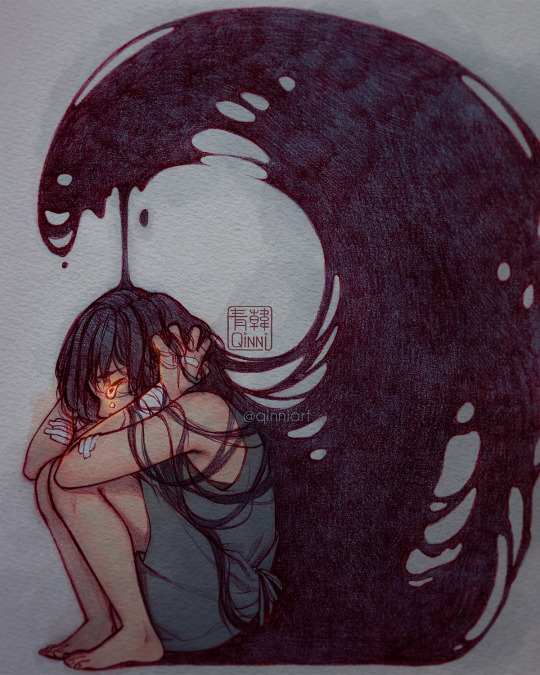

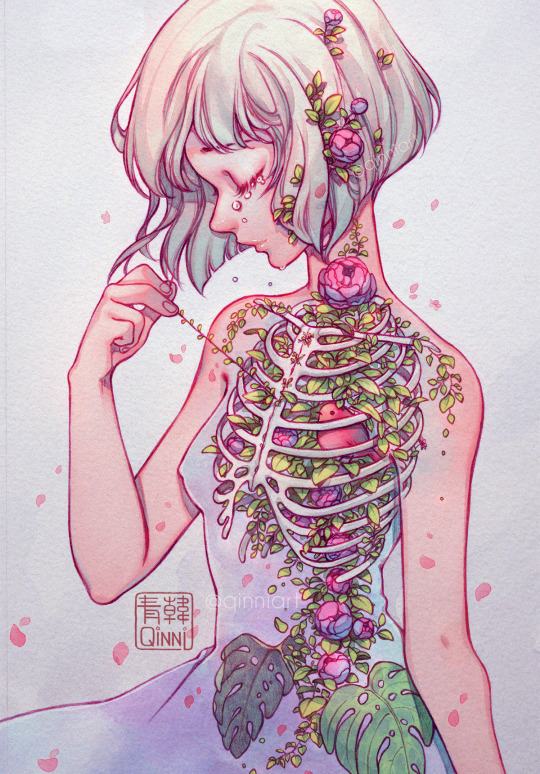
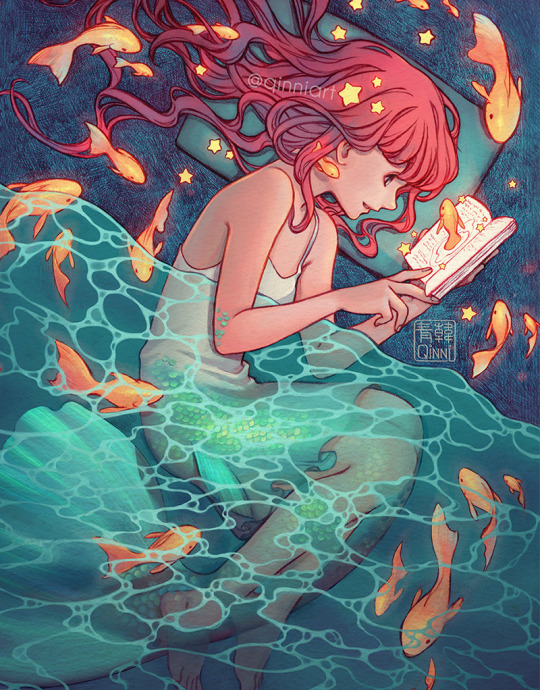
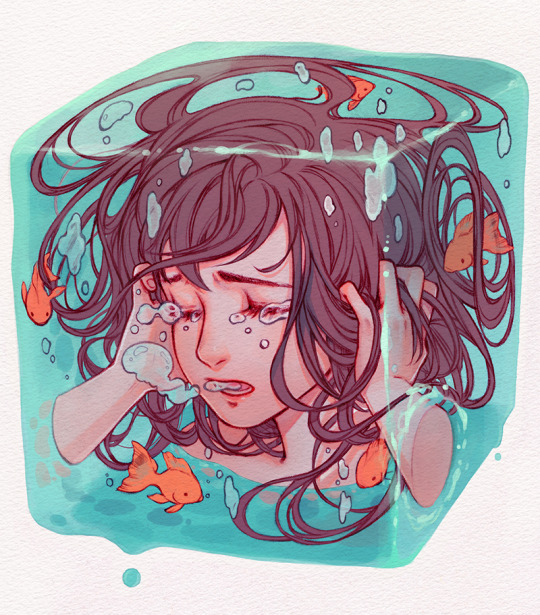


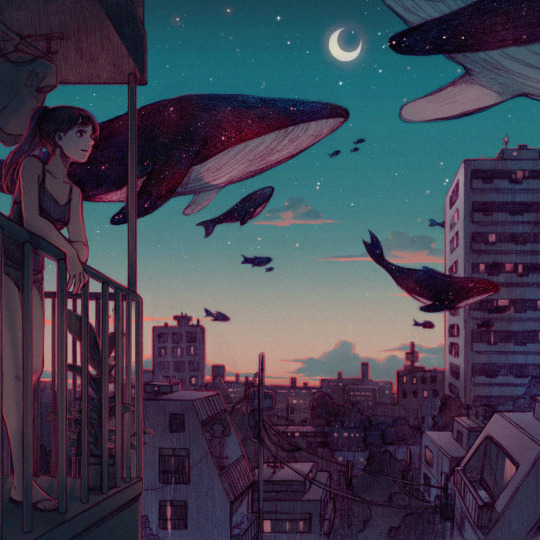
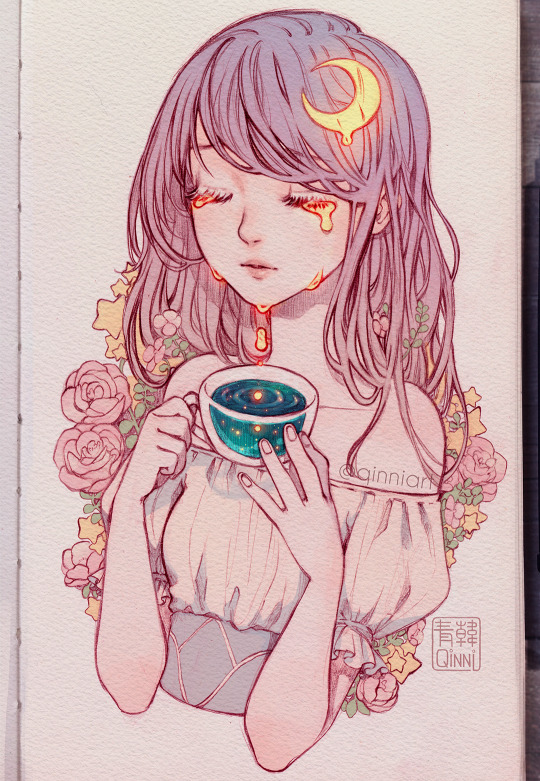
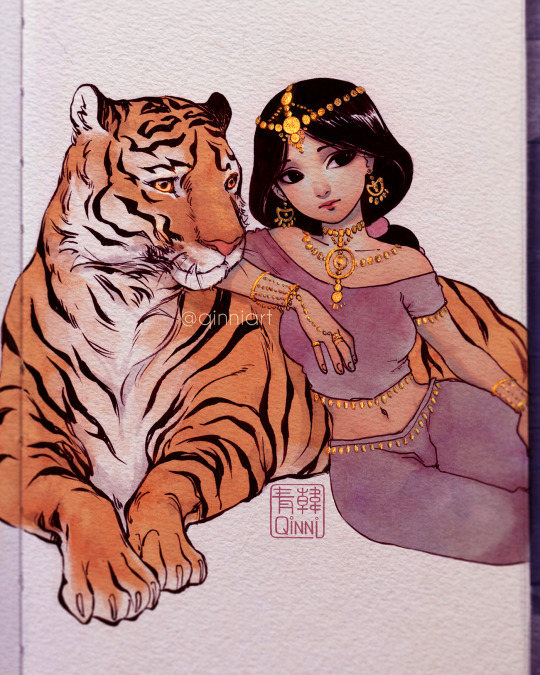
Wow, haven’t been on Tumblr for over 2 years now xD~ I’ve no idea if people are still following me here; migrated to other social medias by now like me xD;;.
I didn’t really just want to leave it like this though.
I was recently diagnosed with stage 4 fibrosis sarcoma cancer, and the doc thinks I got about 1-1.5 years left. I guess I’m really here to kinda….leave my mark? These are just some of my work from the past few years I haven’t been uploading here :3
I’m more active on Twitter, Instagram and Patreon. Every bit of support helps <3. I’m not sure if I’m ever posting back here, but thank you guys so much for reading.
74K notes
·
View notes
Photo


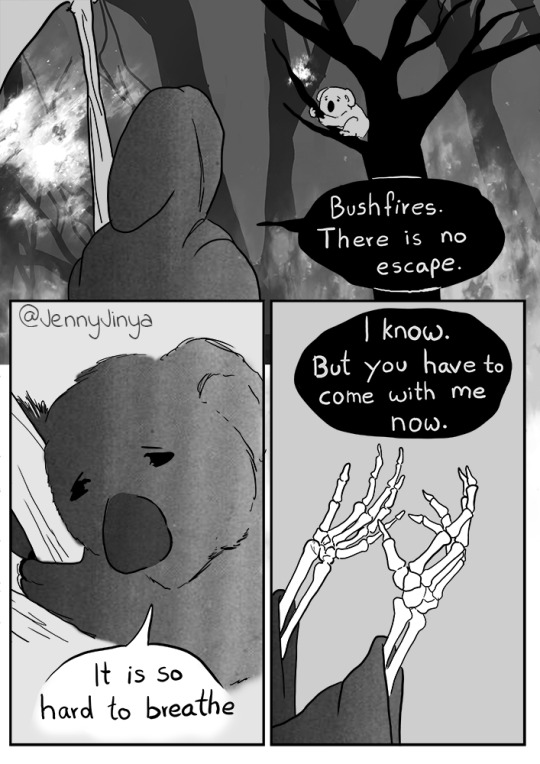


Okay, I’m sorry but I just feel so restless about the bushfires, I made a mini-comic. Maybe it will get a few more people to donate. I wish I could do more. Please see http://wires.org.au if you want to help. :(
102K notes
·
View notes
Note
Hello, would you be able to when you can, make a post about the parallels between Yen and Dany please, thank you
I finally finished catching up on The Witcher and I’m so glad you asked me this! They’re both my babies, and btw I love Yennefer so much that I changed my twitter @ to @yenndany lol.
Disclaimer: Daenerys and Yennefer are very different people but they have a lot of similar experiences and traits. They’re both incredibly important to me and I’m very protective of them both. However, one thing I will say is that I do not want to see people using Yen to prop Dany up — I’ve been very clear that Yen being played by a South Asian actress is very important to me as a South Asian woman and I had a lot of people on targ twitter make very racist and dismissive comments toward me as a result. I had also mentioned that I don’t want show!Jonerys shippers comparing Jonerys to Yenneralt (for good reason). So keep that in mind; I’m madly in love with them both but they are different people at the end of the day, and The Witcher and ASOIAF/GOT are different franchises.
That being said, please enjoy the parallels between our beautiful ladies! Warning for spoilers for Netflix’s The Witcher.
Their family backgrounds Yennefer and Daenerys both come from unstable familial backgrounds. Yennefer’s biological father was half-elf, and he was killed in a genocide known as the The Great Cleansing, in which elves were systematically murdered or enslaved. “The Continent”, which is where The Witcher takes place, was originally inhabited by elves, but once monsters and humans came along, elves taught humans magic and then humans began to wipe out elves to take total control of magic. This is a political backdrop to Yennefer’s life. Yennefer is adopted by a white human family and raised in Vengerberg. However, because her father was half-elf, she was born with a congenital disability: a deformed spine and jaw. Naturally, in the medieval world she lives in, disabled people are oppressed and stigmatized (dwarves, for instance, are also treated poorly on The Continent). Her adoptive family abuses her. While her adoptive mother seems to care for her, she’s complicit in what Yennefer goes through. Yen’s adoptive father is physically forceful with her and forces her to sleep with the family’s pigs in the pig sty. So she is quite literally reduced to animalistic conditions and treated as lower than human.
Daenerys, as we know, was orphaned at birth. Her father, Aerys II, died before she was born, and her mother, Rhaella, died giving birth to her. She and her older brother Viserys had to flee Westeros because the usurper King Robert Baratheon slayed almost the entirety of House Targaryen and would have killed them too had they not escaped. They flee to Essos, a separate continent, with a skeleton loyal guard. Eventually, their loyal guard is whittled down to nothing, as they are forced to go from place to place to escape the Usurper’s “hired knives” (partly Viserys’ paranoia, partly truth). Daenerys faces physical, sexual, and emotional abuse from her brother Viserys, who goes from being protective and caring (he sells Rhaella’s crown to feed her) to predatory, violent, and possessive (caused by years of trauma and paranoia). Daenerys’ only family left in the world is Viserys (of course she’s unaware that Jon Snow is a Targaryen and she doesn’t know who Aemon Targaryen is as he’s masked his identity at the Night’s Watch, and he never met her).
Thus, both Yennefer and Dany have abusive, disruptive family backgrounds and incredibly difficult childhoods. They know what it’s like to live in poverty, and to be stigmatized: Yen because she is disabled (and a quarter elf), Dany because she is a Targaryen and a female exile. By the time they’re teenagers, they’ve already been forced to “grow up” in many ways because of the experiences they go through.
How they are introduced to the viewer & a life-changing moment Yennefer is I believe 14 when we first meet her on the show. A white couple is strolling along and the girl drops a dandelion that the guy gives her. Yennefer, who is an innately kind and helpful person, picks up the dandelion and reaches out to the couple. They are disgusted at seeing a disabled girl, who is the mockery of their village, holding the dandelion, and immediately jump on her and start mocking her. They talk about how she must not understand love and sex and how her father makes her sleep amongst pigs. It is very evident as they’re on top of her that she’s about to be beaten, assaulted, and most likely raped by the couple. She is terrified, and in her desperation, she creates a magical portal that takes her to Aretuza (far away from Vengerberg), where she meets Istredd. This event will forever change her life. Istredd tells Yen that she clearly has an innate magical power because she was able to unconsciously summon a portal. He tells her to avoid revealing her power to others. They hear footsteps, and Yennefer somehow summons a portal again, and takes it back to her village. However, it’s too late for her, because the Brotherhood of Mages is already aware of her power. Tissaia de Vries, a Rectoress (aka mage mentor/guide) from Aretuza, comes to buy Yennefer from her family. She purchases Yennefer for four marks. (Now note: I’m not calling Tissaia a slaver or a bad person, I actually quite like Tissaia and this is a life-saving moment for Yennefer as it turns out, but Yen IS bought and sold for merely four marks).
Daenerys is 13 in the books and 16 on the show when she first meet her. On the show, she’s pensively looking out of a window, and in the books we learn that she’s missing home, and that all she wants is to go back home. However, when her brother Viserys comes calling for her, she stands in front of him and he molests/assaults her. He tells her to make him happy and that he will be marrying her off to Khal Drogo, a warlord of the Dothraki. Essentially, he’s selling his sister off to a grown warlord for the exchange of an army that he would take to reconquer Westeros. He later tells Daenerys that he would gladly let Drogo, his men, and his horses “fuck her” if it meant getting an army to take them back home. So Daenerys is also bought and sold, not for money but for an army.
Neither Yen nor Dany have any control over what happens to them. No one cares that they’re being bought and sold, or what danger lies ahead of them. And they’re both introduced to us as victims of violence and abuse, as young girls who’ve already endured far more than any girl should. They’re also treated as property. At this point they have no agency, power, or autonomy, and are forced to resign to their fates. However, this is the beginning of their journeys, and a clear turning point in their lives. It will set up the rest of their arcs.
PTSD/TraumaYennefer is so shaken by the fact that her father literally sold her for four marks, that this is what her worth to him is, and that her mother was sad but just stood there and let it happen, that she punches a mirror and then uses a shard of the mirror’s glass to slit her wrists.
Daenerys is raped every night by Khal Drogo. The experience is so painful and miserable that she contemplates killing herself at first, and only her dragon eggs (gifted to her at her wedding) give her the strength to stay alive.
They experience PTSD, anxiety, and depression, and both were suicidal at some point.
Magical abilities Yennefer is a powerful mage. She is one of the most talented mages on The Continent and her power is awe-inspiring but can also be destructive.
Daenerys is a true Targaryen. She has the dragon-riding ability that was lost amongst Targaryens after the dragons died out. She has prophetic dreams and visions that come true. The birth of her dragons brought back a resurgence of magic into the world. And due to a combination of her dreams, Mirri Maaz Durr’s blood magic, and her Targaryen heritage, Daenerys was able to walk through fire and emerge unscathed.
It took them both time to achieve their magic, though. Yennefer’s emotions were clouding her ability to control chaos (in The Witcher, magic is defined as the ability to control chaos), and so even though she was full of power, she couldn’t get a handle on it at first. Similarly, Dany didn’t know what to do with the dragon eggs. Even when she put them on a hot fire, they didn’t hatch. She had to properly interpret her prophetic dreams to understand how to hatch them.
Finally getting a sense of home/peace before having it snatched away Once Yennefer “ascends”, as in officially becomes a mage, she’s assigned a position to the Court of Aedirn as the King’s Mage. She’s really happy about it because Vengerberg is in Aedirn so she’d be going home. She’s ready to experience success and power, after years of being denied love, attention, and basic humanity. However, Istredd, her first boyfriend, is feeding information to his Rector, Stregoborg, and he tells him that Yen is part-Elf. Political upheaval complicates the assignments Tissaia gives to the mages she’s in charge of, and Fringilla, another witch (and the niece of the head of the Brotherhood) is assigned to Aedirn (because of nepotism) while Yennefer is assigned to Nilfgaard (which is a backwater and full of corruption, as Yennefer knows quite well). Yennefer is devastated, and after a confrontation with Istredd in which she realizes her options are either going to Nilfgaard or becoming essentially a housewife to Istredd, she makes a very impulsive decision (more on that later in the post).
Dany’s husband, Khal Drogo, gets injured in a fight with one of his bloodriders. The fight began because Dany wanted to protect the Lhazareen women from rape and claimed them as her own. Drogo decided to grant her whims, much to the ire of his bloodriders, and upon getting injured, one of the Lhazareen women, a witch named Mirri Maaz Durr, claimed she could help him. Drogo actually ended up getting sick and fell off his horse, which is the worst thing that can happen to a Dothraki Khal, for it signifies that he is too weak to lead his horde. Desperate and heartbroken, Dany cuts a deal with Mirri Maaz Durr, but doesn’t realize the depth of the price she pays. She goes into labor but when she wakes up she finds out that her son was stillborn and died. Also, Khal Drogo survived, but he was left in a vegetative state. Dany had no choice but to mercifully kill him, and later made a decision that also changed her life.
Both of them were betrayed by people they trusted (Istredd and MMD) and both of them lamented that they were so close to achieving happiness but that their happiness got snatched away from them.
A life-changing, magical transformation that required sacrifice Yennefer refuses to let her choices be either getting sent off to Nilfgaard or becoming Istredd’s little girlfriend. Heartbroken and angry, she chooses to undergo a magical transformation that would heal her deformed spine and jaw (essentially make her beautiful and able-bodied). It’s an excruciating and extremely painful process, and she chooses to go through it wide awake (so she endures all that crippling pain on purpose). Also, the magician cuts out her uterus because the sacrifice required for the transformation is giving up your ability to have children. It’s gruesome and heartbreaking, but she does come out alive, with her spine and jaw healed, and extremely beautiful.
After Dany mercy kills her husband, she captures Mirri Maaz Durr and ties her to her husband’s funeral pyre. Having pieced together the clues from her prophetic dreams, Dany knows how to hatch her dragon eggs. She walks unflinchingly into her husband’s funeral pyre (essentially she walks into fire awake and alive) and comes out alive, unburnt, and cradling three baby dragons. She birthed the first dragons seen in 100 years after many of her ancestors failed to do so, and with the birth of her dragons, she becomes “the Mother of Dragons” and brings back a resurgence of magic into the world.
Both of these transformations took place because Yen and Dany willingly sacrificed themselves. Both of these transformations also completely change Yen and Dany’s paths, give them power, and set them on a very different life course.
Grappling with infertility Yen makes an irreversible choice when she is young because she was impulsive, emotional, and heartbroken in that moment. But she also made that choice after years of facing violent abuse & not wanting to continue being a pawn. However, as she grows older, she regrets her choice to sacrifice her womb, because at her core she is full of love and longing and wants to be important to someone. She loves children, cares for them, and wants to be a mother. She searches the world for a way to reverse her infertility, but obviously will never find a solution because the transformation is permanent. She does eventually realize that she’ll never be able to biologically have children, but her future bond with Princess Cirilla Fiona Ellen Riannon will be important because she’ll become Ciri’s mother-figure, and it’ll fill the hole in her heart. Still, grappling with her infertility is a huge point of insecurity and tragedy for Yennefer.
Mirri Maaz Durr tells Dany that she will never be able to have children again because of the bargain she struck. We don’t know how true this prophecy is, given that Dany may have experienced a miscarriage in A Dance with Dragons, but Dany goes through life thereafter believing that she will never have children again. And she believes it because her son Rhaego is stillborn. It’s an extremely traumatizing experience for her, but one that she suppresses because she has no time to mourn him, and emotionally & psychologically has no more capacity to ruminate over her trauma. When she becomes the Mother of Dragons, she claims the dragons as her own children, in part because it was her sacrifice and her pain that birthed them, in part because they are a physical manifestation of her blood, her heritage, and her house, in part because they give her a new sense and form of power and autonomy, and in part because she is their caretaker, they are attached to her as their mother, and they fill the place her infertility has left inside her. She is very sad, though, about not being able to have human children, as she tells her dragons that they must be her children, and later, when remembering that her son Drogon killed an innocent little girl named Hazzea, she cries over her and thinks “I will never have a baby girl. I am the blood of the dragon”. Even though she had no time to process her infertility, it clearly affects her and upsets her. She, like Yen, just wants to go back home and find a family.
Fire Queens This is beautifully straightforward and makes for a great visual parallel. They both have fiery, passionate, and emotional personalities, but on the magical front they’re both fire queens. When Tissaia tells Yen to “let [her] chaos explode”, Yen’s magic quite literally explodes in a field of fire that annihilates all their enemies. Meanwhile, Dany’s House’s motto is “fire and blood”, she is “the blood of the dragon” and “the mother of dragons”, the “fire” in “a song of ice and fire”, the fire that will burn against the cold, & she walked into fire unburnt when she birthed her dragons.
Destiny’s great loves Destiny connects Yennefer and Geralt of Rivia, who are fated to be each other’s greatest loves. The same goes for Jon Snow and Daenerys Targaryen, each respectively the “ice” and “fire” in “a song of ice and fire”, fated to be warriors against the Others and the threat of the cold. There is great foreshadowing in ASOIAF for Jon and Dany’s eventual meeting and romance. Saving Yennefer is also Geralt’s “last wish” granted to him by a djinn. They are connected by destiny which is why they always end up together.
Protective of women and children If I sat here and listed every example of this then I’d be sitting here for days! Yennefer and Dany are champions of the innocent and powerless, especially women and children. They are compassionate, empathetic, and kind.
Ultimately, Daenerys and Yennefer are both very unique, interesting, complex, multidimensional, intriguing, tragic, and gorgeous characters. They’re two of my favorite characters and very important to me. They also face a lot of unnecessary hatred from jealous and insecure people in their respective fandoms because they both contradict and defy the “uwu, soft, non-threatening, ‘strong’, kind, sweet, pure, infallible, little dove, never makes mistakes, underdog soft, sad” female character archetype. Here’s to our fire queens!
115 notes
·
View notes
Note
love love LOVE your recent post on Dany + not being a fascist. These posts have been super upsetting to see on my dash and I've unfollowed people because of them. You have an understanding of GRRM's works & other fantasy outside of ASOIAF that address the slander against Dany in a way few of us can. If you had the time, I was wondering if there's any material from the greater works of GRRM that debunks the view that she's a narcissist?
Thanks! But I don’t think we need any extra textual evidence from GRRMs other books to prove that Daenerys is not a narcissist?
A narcissist is someone who only thinks of themself, whereas Daenerys is always thinking about others; this is why she runs toward the carnage in Daznak’s Pit, to try to save people, instead of looking the other way as Barristan advises. She runs toward danger rather than away, like a medieval fantasy superher0. I would provide quotes but I can’t quote five whole books here; tumblr text posts eventually hit a character limit.
Last night I listened to the part in HP2 when Gilderoy Lockhart (a very obvious narcissist) has been nominated to rescue Ginny in the chamber of secrets, and Harry finds him among all his pictures of himself packing up his stuff to hightail it out of there. This is the very opposite of what Daenerys does when she encounters someone in trouble.
Daenerys is a compassionate person who puts her own life on the line for others, she’s a person who delays her own goals (Westeros) to bring change to Essos, she marries Hizdahr not because she wants to but because she doesn’t want more innocent people to die. She is very self-sacrificing, but Daenerys could die beyond the curtain of light while saving the world and people would still call her a narcissist, because they hate her.
I don’t even know how we got here as a fandom. I almost miss Ye Olde Tyrion Wank, because at least then I talked about Lannisters and I wasn’t bored. The Dany wank in recent times is so trite, so uninspired, it’s not even worth the popcorn.
184 notes
·
View notes
Photo


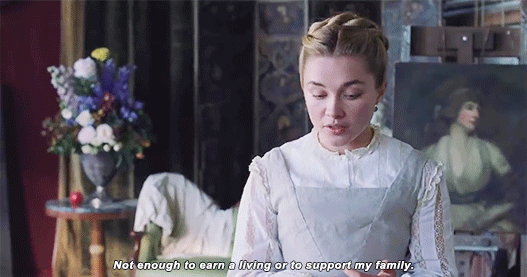
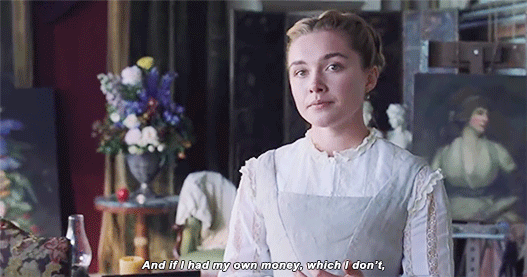
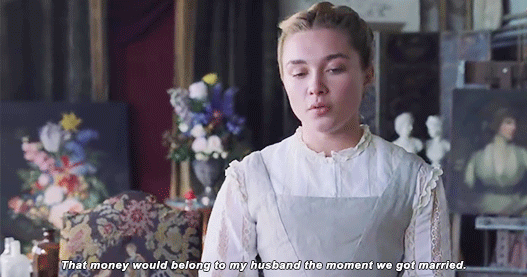


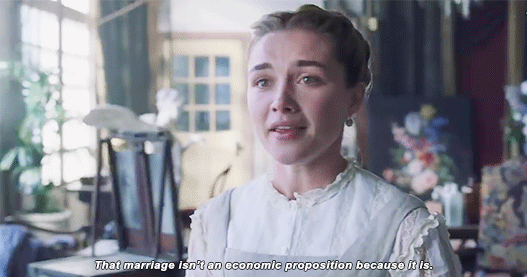

Well I believe we have some power over who we love, it isn’t something that just happens to a person. I think the poets might disagree.
LITTLE WOMEN (2019) DIR. GRETA GERWIG
16K notes
·
View notes
Photo
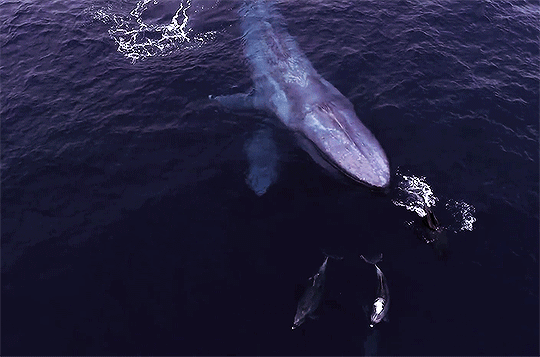
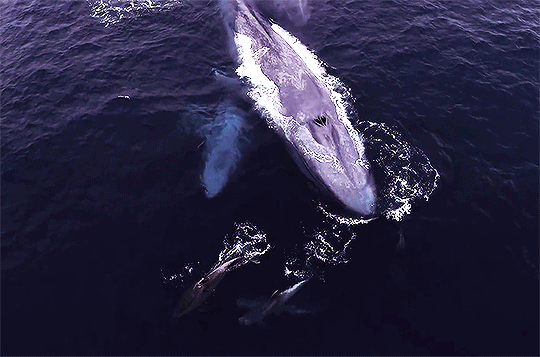
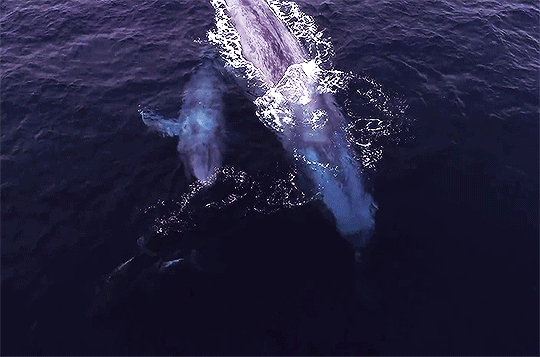
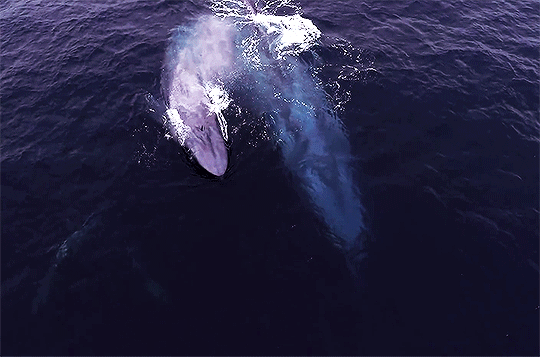

Blue whale mother and calf playing with bottlenose dolphins (DolphinDroneDom)
4K notes
·
View notes
Text
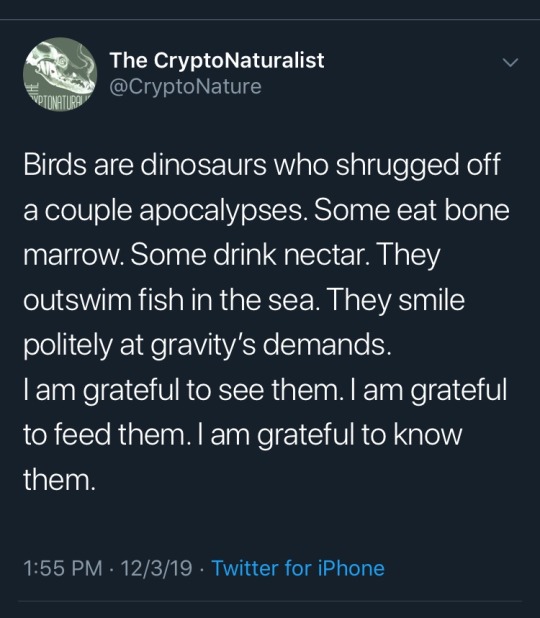
Birds are dinosaurs who shrugged off a couple apocalypses. Some eat bone marrow. Some drink nectar. They outswim fish in the sea. They smile politely at gravity’s demands. I am grateful to see them. I am grateful to feed them. I am grateful to know them.
38K notes
·
View notes
Photo
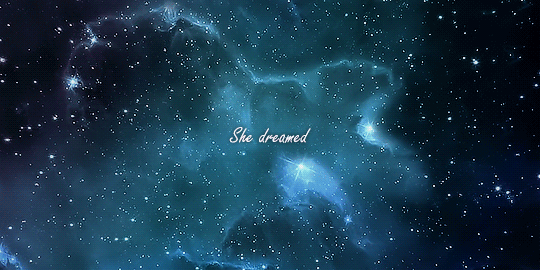
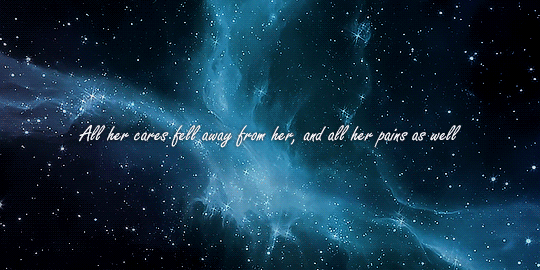
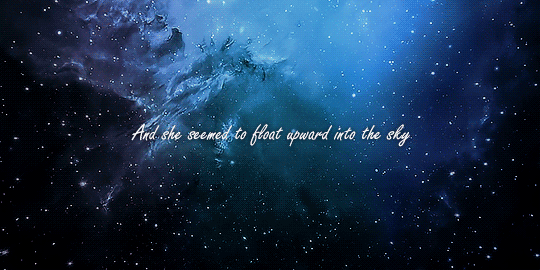
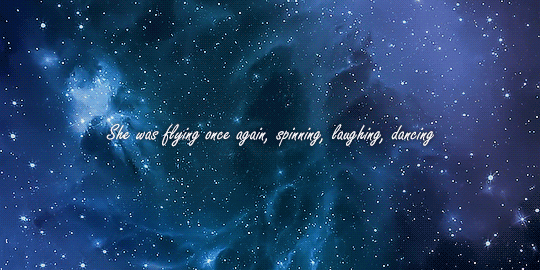
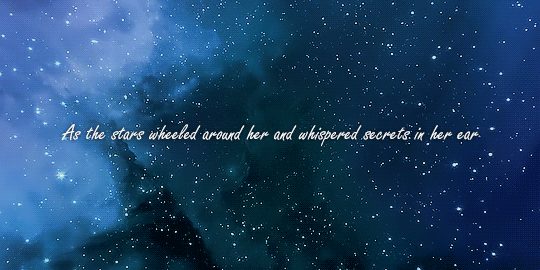
To go north, you must journey south. To reach the west, you must go east. To go forward, you must go back. To touch the light you must pass beneath the shadow.
228 notes
·
View notes
Text
So, the more I think about it, the more I consider becoming a vegetarian. I just don't think I could go on consuming meat knowing what animals go through.
Thoughts? Advice?
17 notes
·
View notes
Photo
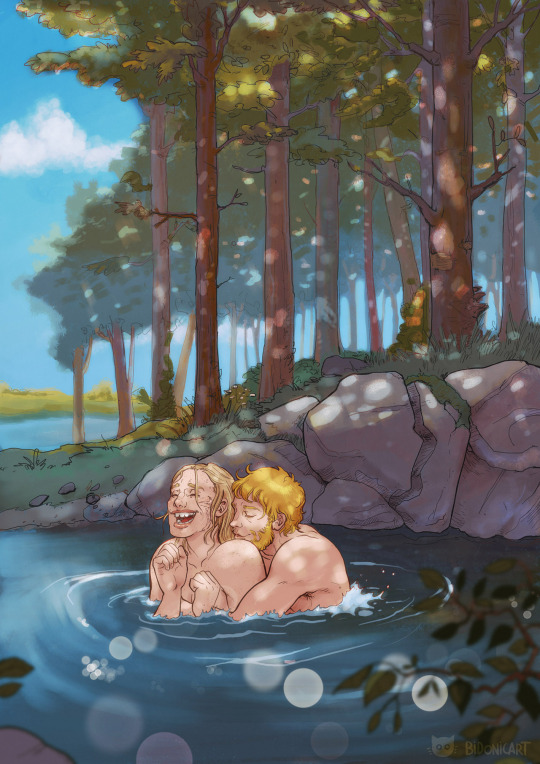
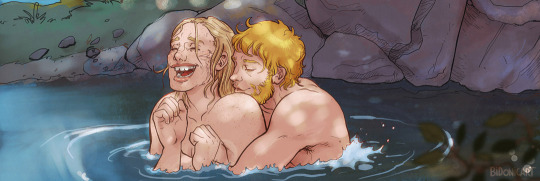
after winter is over, Jaime and Brienne head back south and stop for a bath in small cove at the Trident
Oathkeepers Secret Santa for my giftee Tarthstar! And thanks to @onionjulius who helped me come up with the concept!
1K notes
·
View notes
Photo
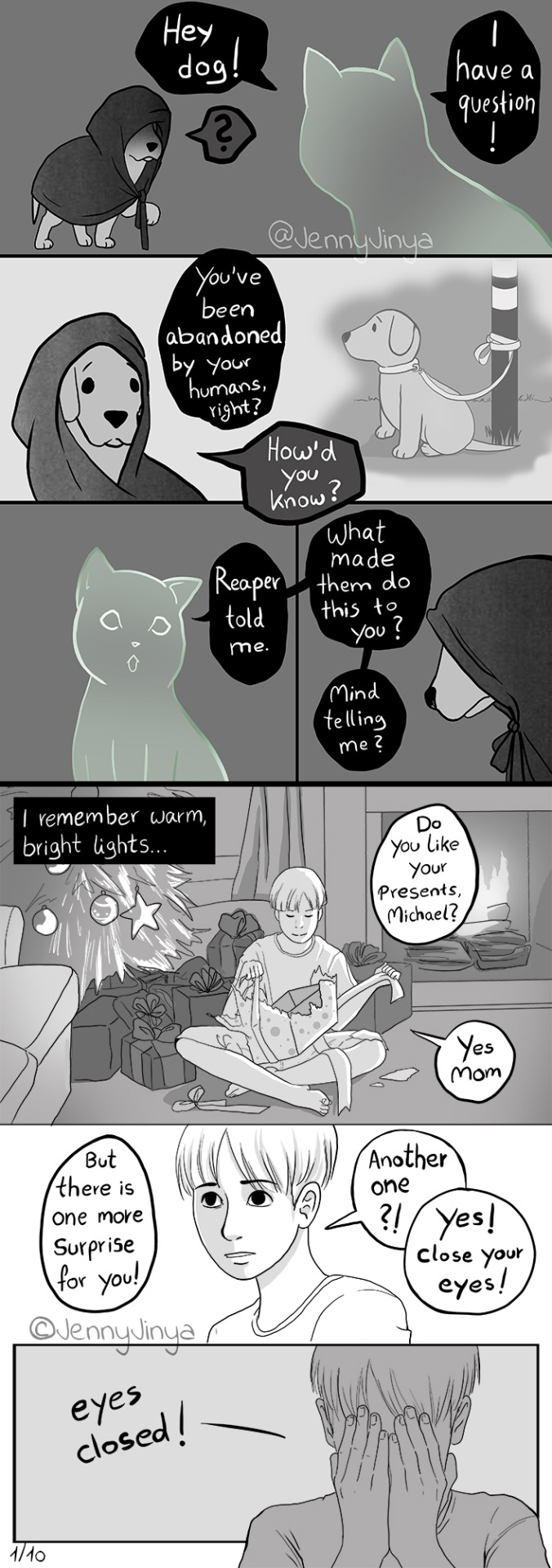

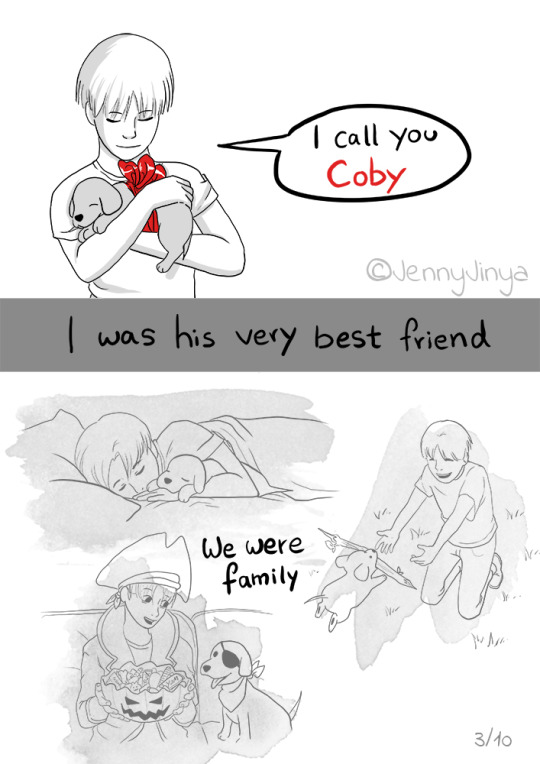
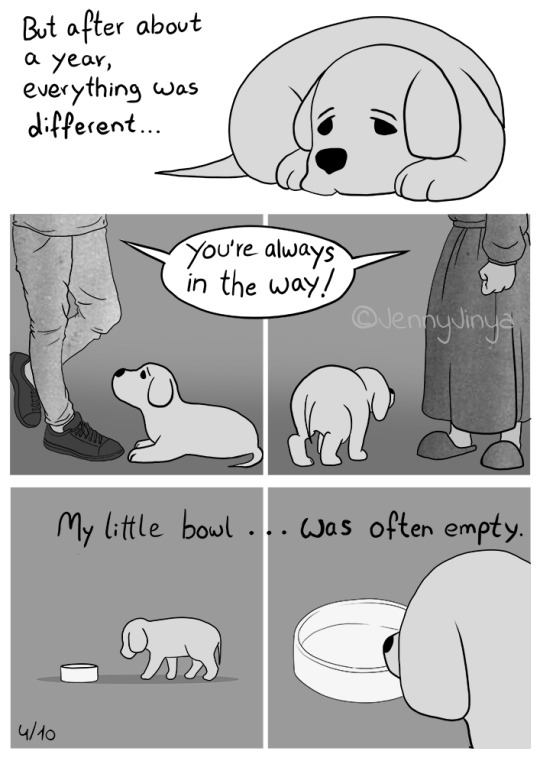


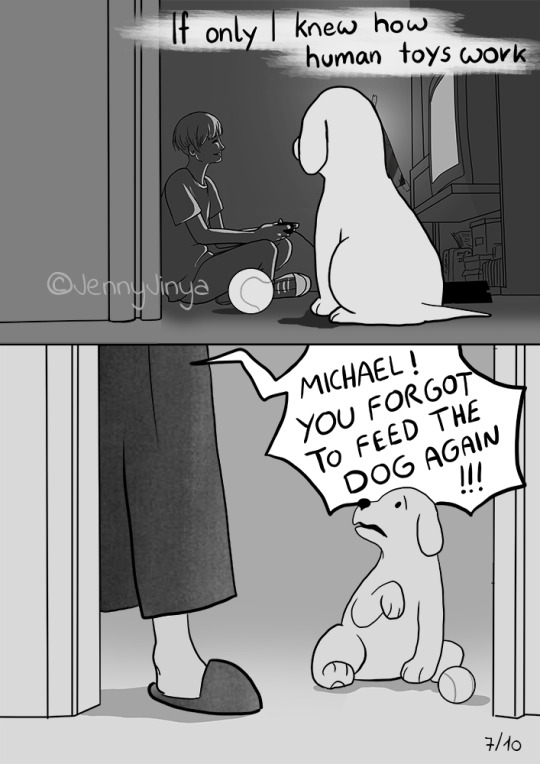
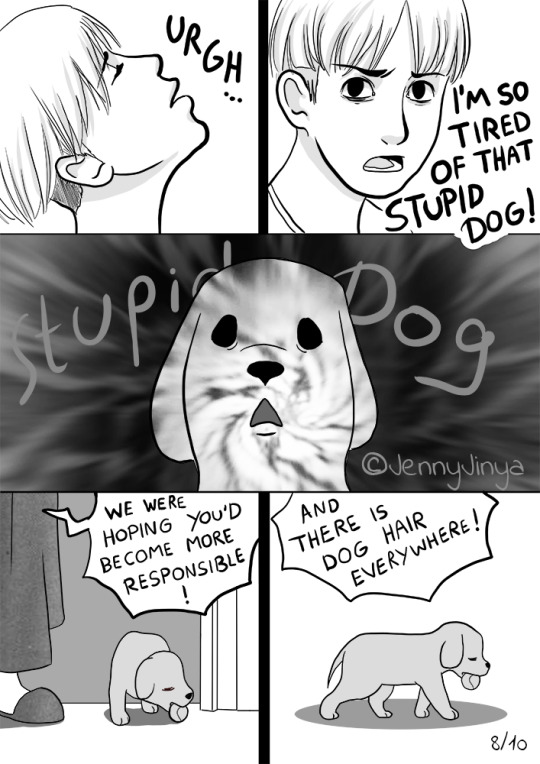
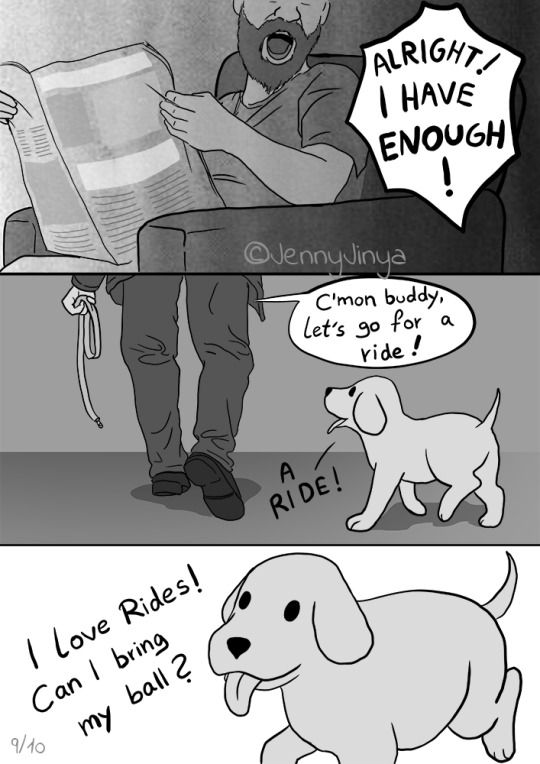
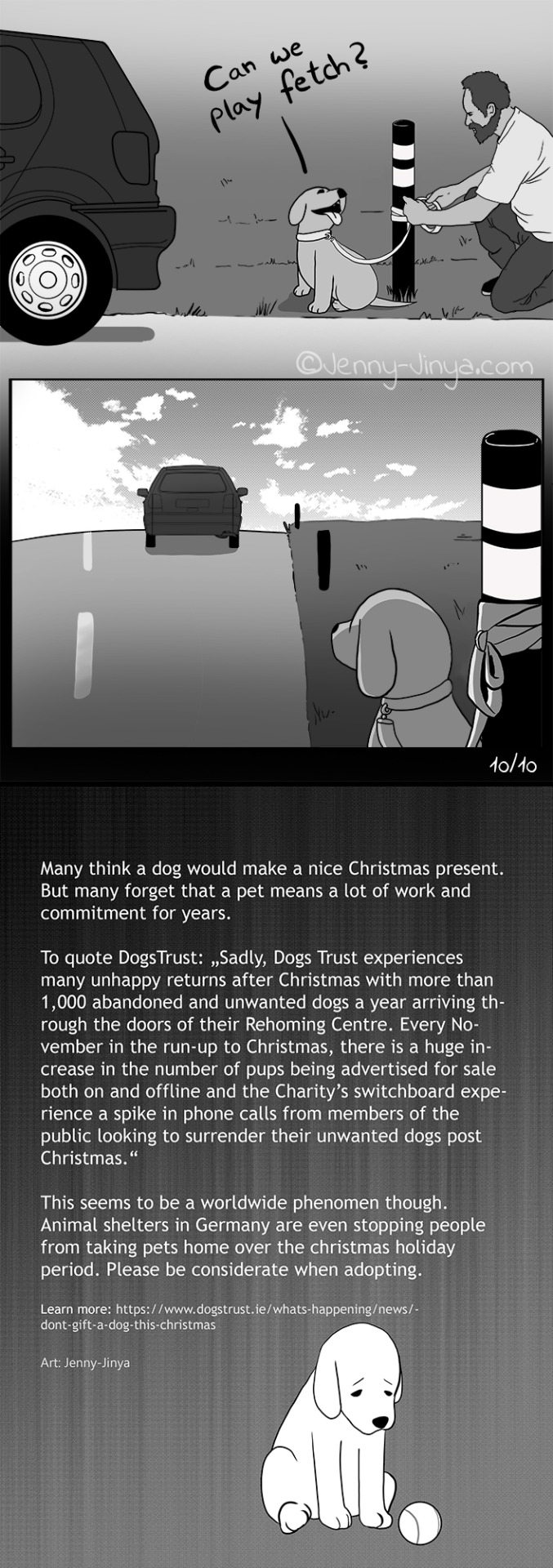
It’s holiday season and (I know you’ve seen it coming) we will learn today why our “reaper-doggo” was abandoned.
Adopt - but be considerate.
Have a lovely time everyone
55K notes
·
View notes
Photo
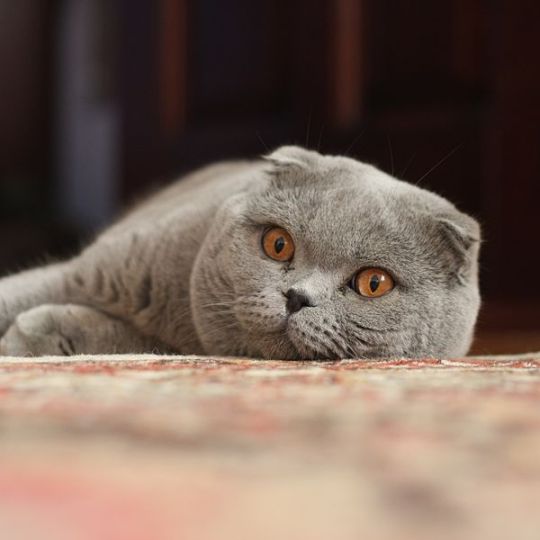
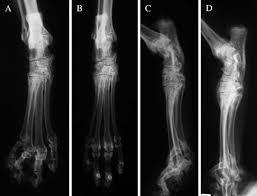
If you love Scottish fold cats, I’m going to tell you something you don’t want to hear. Please, please read on anyway. If you are considering adopting a Scottish fold, PLEASE continue reading. This information needs to be more widely known.
In 2008, the Journal of Small Animal practice released a short report on disorders associated with breeds of cats. In this report, the authors mentioned the Scottish fold:
People who own them may be “charmed” by their round faces and open expression (and they may not realise that the reason the cats do not move around too much is because they are variably crippled with arthritis).1
The gene that causes the cute fold in the Scottish fold’s ear also leads to the development of a degenerative disorder called osteochondrodysplasia. ALL Scottish folds have this disorder, whether they show symptoms or not- the fold in their ears is caused by a cartilage deformity that also affects their joints.
Osteochondrodysplasia leads to crippling osteoarthritis, which affects Scottish folds at much younger ages than other breeds of cats. In cats heterozygous for the gene, the disease’s progression can be seen in cats as young as six months. In homozygous cats, it can be seen as early as seven weeks old.
Affected cats may be grossly deformed, with short wide limbs and a short, inflexible tail. They show lameness, swollen wrist (carpal) and ankle (tarsal) joints, have an abnormal gait, and are reluctant to move and jump. Severely affected individuals become crippled and unable to walk.
…Many affected cats are euthanased earlier in life due to the profound effects of this disease.2
The breed is often described as “placid” and “calm.” This is due to the fact that they are constantly in pain due to this disorder. Even in mild, ‘asymptomatic’ cases which can occur in heterozygous cats, they may still be experiencing pain due to cats’ tendency to hide their suffering.
Many breeders of Scottish folds claim that not all heterozygous cats have the disorder, because the studies that examined the cats (which were all, heterozygous or not, shown to have it) had small sample sizes.
In 2003, Lorraine Shelton, a specialist in genetic diseases, offered to pay for 300 x-rays of healthy adult Scottish folds to prove that the disorder was not present in some heterozygous cats.
…She has asked a list of 300 Scottish Fold breeders from around the world to go to their vet to get X-rays done. She had offered to pay for these X-rays but not a single breeder had taken up that offer. You could not know whether this problem existed unless an X-ray was taken. If somebody would send her an X-ray of a healthy hind leg of a folded eared cat, she would be grateful as she wanted to see the very first one.3
To date, no one has taken her up on the offer. The breeders’ unwillingness to have their cats examined speaks volumes. The authors of all studies on these cats agree: it ethically wrong to continue breeding these cats.
It disturbs me that any breeder would knowingly continue to create animals that will be in pain throughout their lives. As a cat lover myself, I am begging you, please do not buy Scottish folds. Do not support these unethical breeding practices, or the concept that it is acceptable to intentionally breed unhealthy animals for the sake of how they look.
Citations
1 Breed-related disorders of cats (discusses issues with other breeds as well)
2 Genetic welfare problems of companion animals: osteochondrodysplasia (a thorough description of the disease and its prevalence)
3 FIFe meeting notes (leading to a decision not to recognize Scottish folds as an offical breed due to the disorder)
There was also a follow-up email about Shelton’s offer which can be read here.
Studies on osteochondrodysplasia in Scottish Folds
Osteochondrodysplasia in Scottish Fold cats
Incomplete dominant osteochondrodysplasia in heterozygous Scottish Fold cats (this is the source of the above x-ray pictures)
Before you buy ANY animal, please do your research. If a breed suffers from high incidences of genetic disorders, don’t use your money to support the creation of more animal suffering.
94K notes
·
View notes

